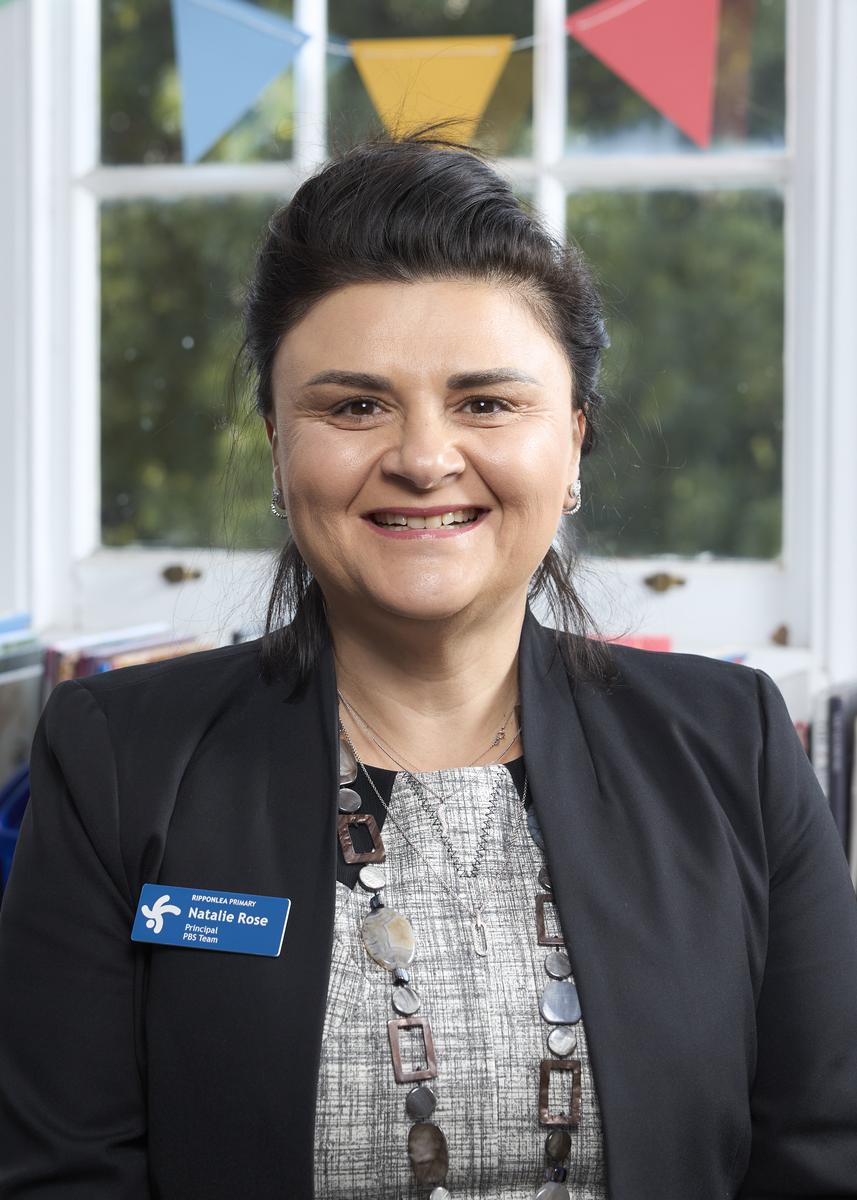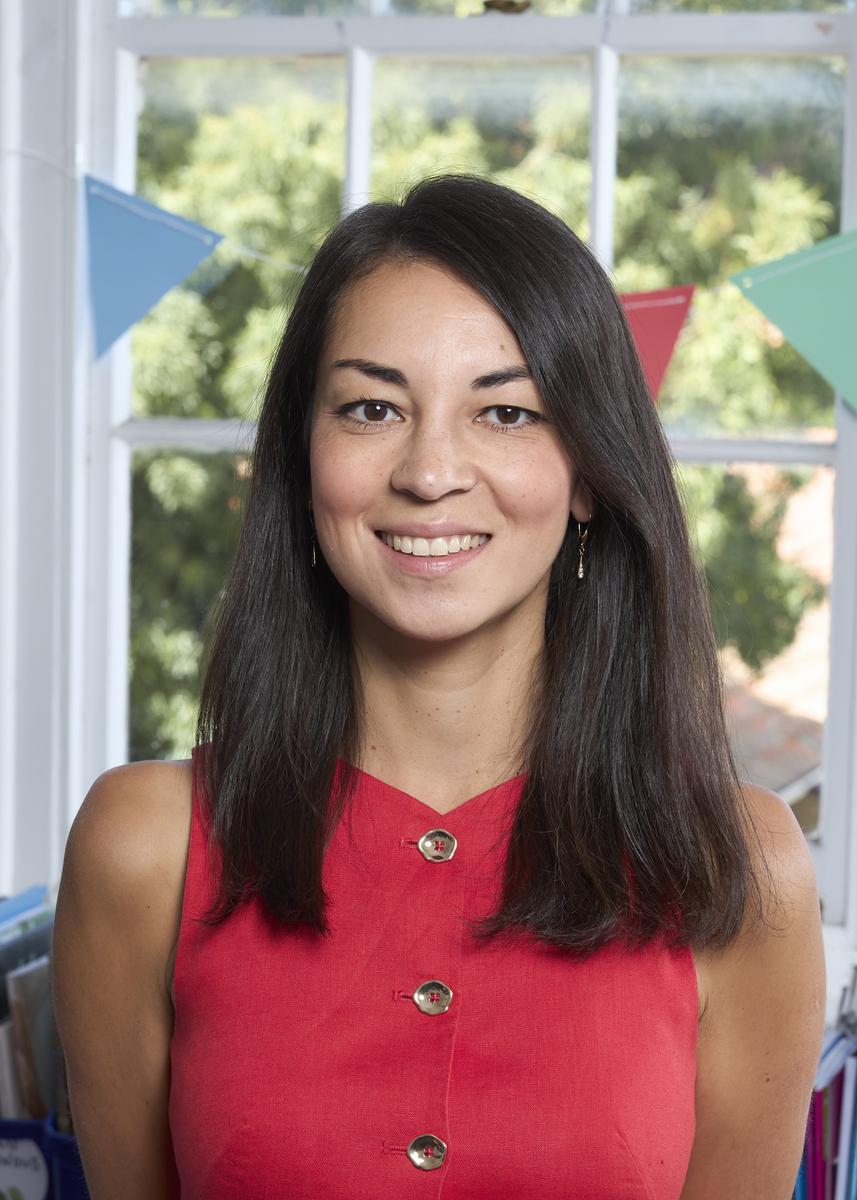Principal Team Message
Term 2 - Edition no: 9, 2025
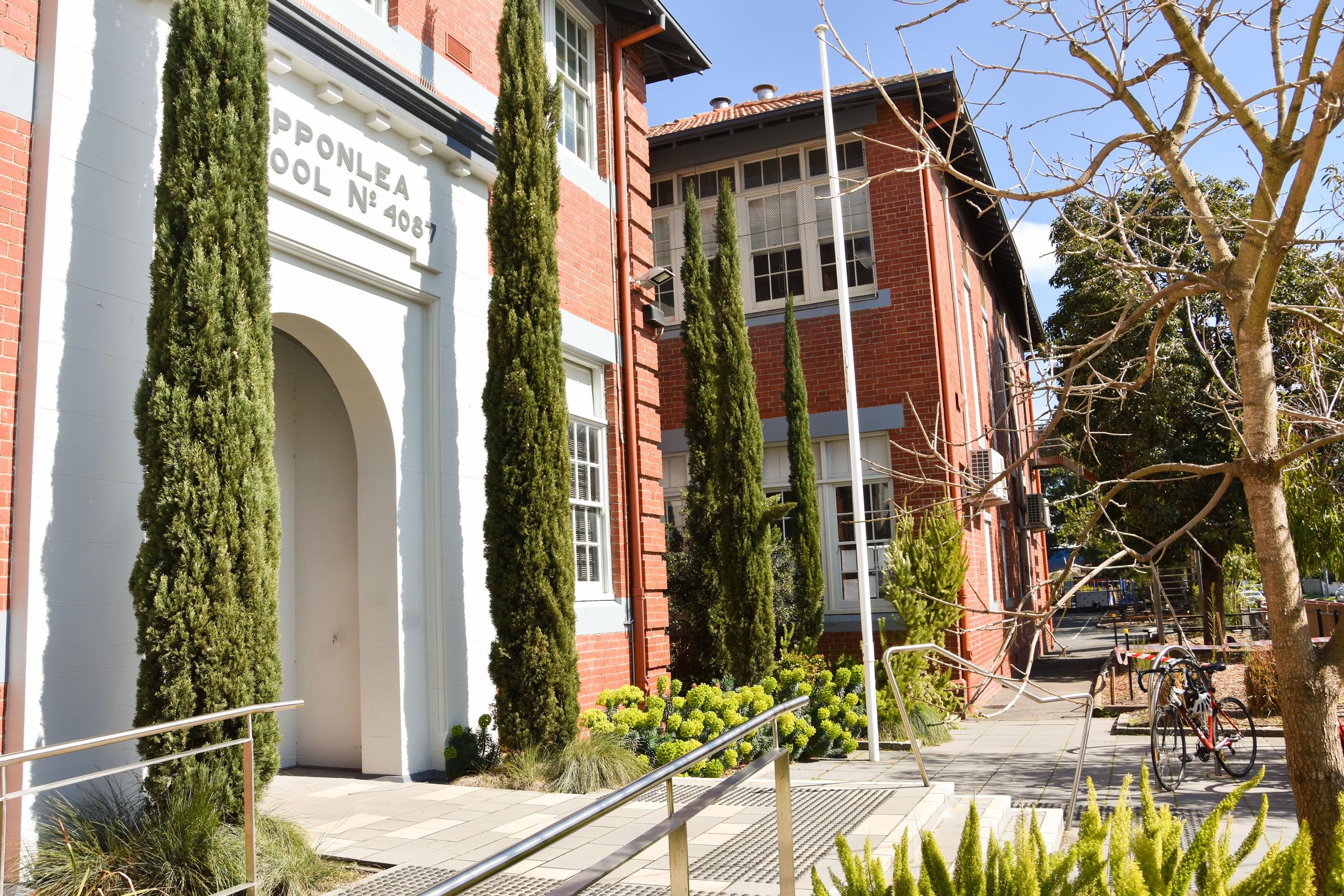
Principal Team Message
Term 2 - Edition no: 9, 2025
At Ripponlea Primary School, we believe that learning to manage emotions is just as important as learning to read, write, and solve problems. That’s why we are proud to be entering our second year of delivering the Zones of Regulation curriculum across the school—and this term, we are launching dedicated Zones lessons for all students from Foundation to Year 6.
The Zones of Regulation is an internationally recognised social-emotional learning framework that helps students identify their emotions, understand how those emotions affect their behaviour, and develop appropriate strategies to manage them.
The Zones of Regulation groups emotions into four easy-to-understand colour zones:
Students learn that all emotions are valid and that the goal isn't to avoid certain zones, but to recognise them and choose the right tools to help return to a zone that supports their learning and wellbeing—especially the Green Zone.
Emotional regulation is a critical life skill. When students can name their emotions and understand what they are feeling, they are better equipped to:
Just like we teach strategies for solving math problems or decoding tricky words, we also teach strategies to help manage big feelings. These might include mindful breathing, taking a break, using movement, talking to a trusted adult, or practising positive self-talk.
Throughout the term, students will engage in interactive lessons tailored to their age and developmental level. These lessons will help them:
We also integrate the Zones language across the school, so it becomes part of the everyday conversation between students and teachers—helping students make connections between their emotions, their behaviour, and their learning.
You can support your child by using Zones language at home. Some examples include:
Helping children become emotionally aware and resilient is a team effort. With consistent support from home and school, students can build the skills they need to thrive in all areas of life.
Thank you for being a part of our journey as we support our learners in becoming confident, self-aware, and emotionally intelligent individuals.
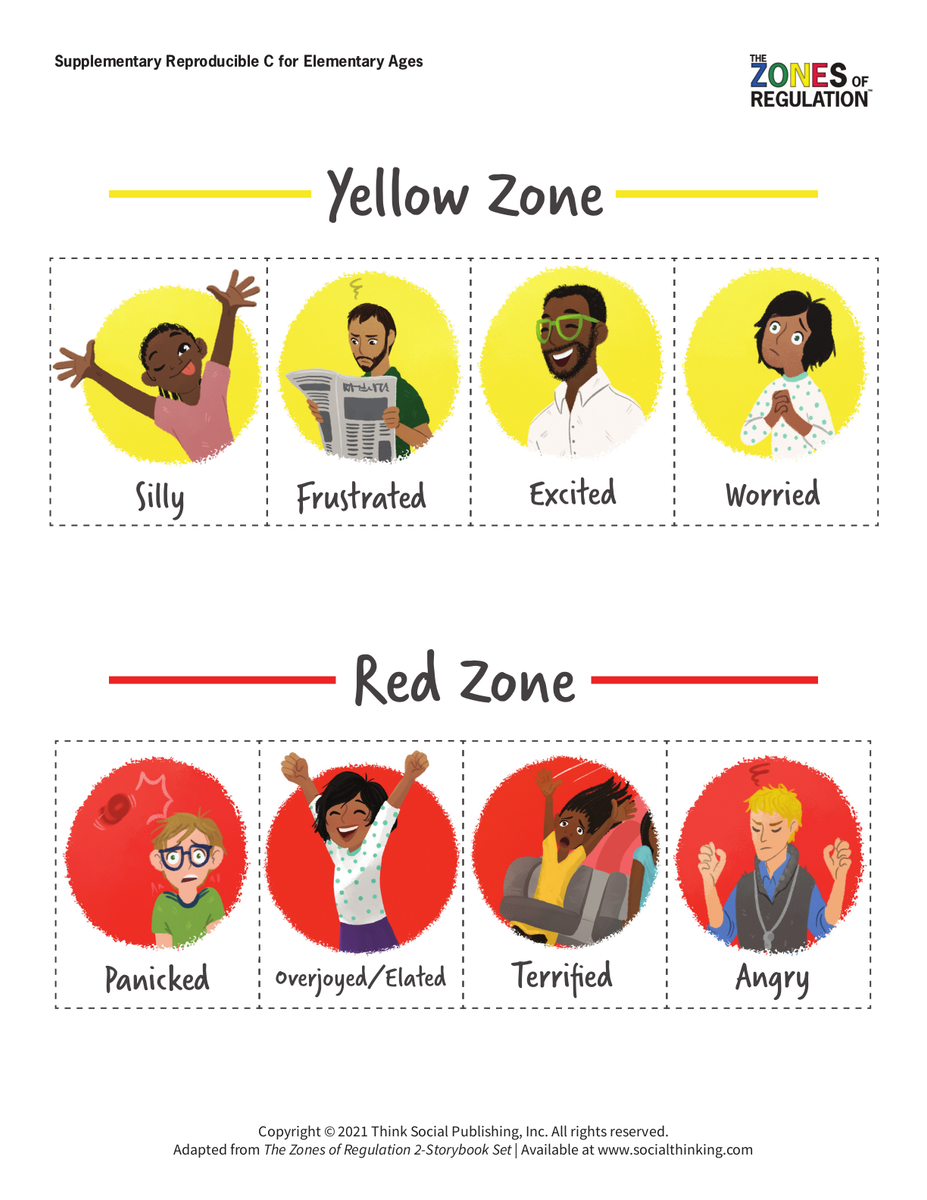





At Ripponlea Primary School, we are committed to nurturing resilient, independent, and self-managed learners. Our approach is grounded in the belief that students thrive when supported by clear, consistent routines that promote responsibility, organisation, and emotional readiness.
This term, we are proud to introduce and embed our Ripper Ready and Ripper Class Routines across the school. These school-wide practices are designed to support every child in transitioning smoothly between learning environments and starting each day ready to engage and succeed.
Routines are the foundation of success, both at school and in life.
They:
When children understand what’s expected of them and can independently prepare for learning, they are more focused, confident, and capable.
Our two routines are displayed visually in classrooms and practised daily:
Ripper Ready Routine – For Transitioning Into Learning Spaces
Ripper Class Routine – For Being Ready to Learn
These routines link directly to our School-Wide Positive Behaviour Support (SWPBS) framework and wellbeing goals, helping all students feel safe, respected, and in control of their learning.
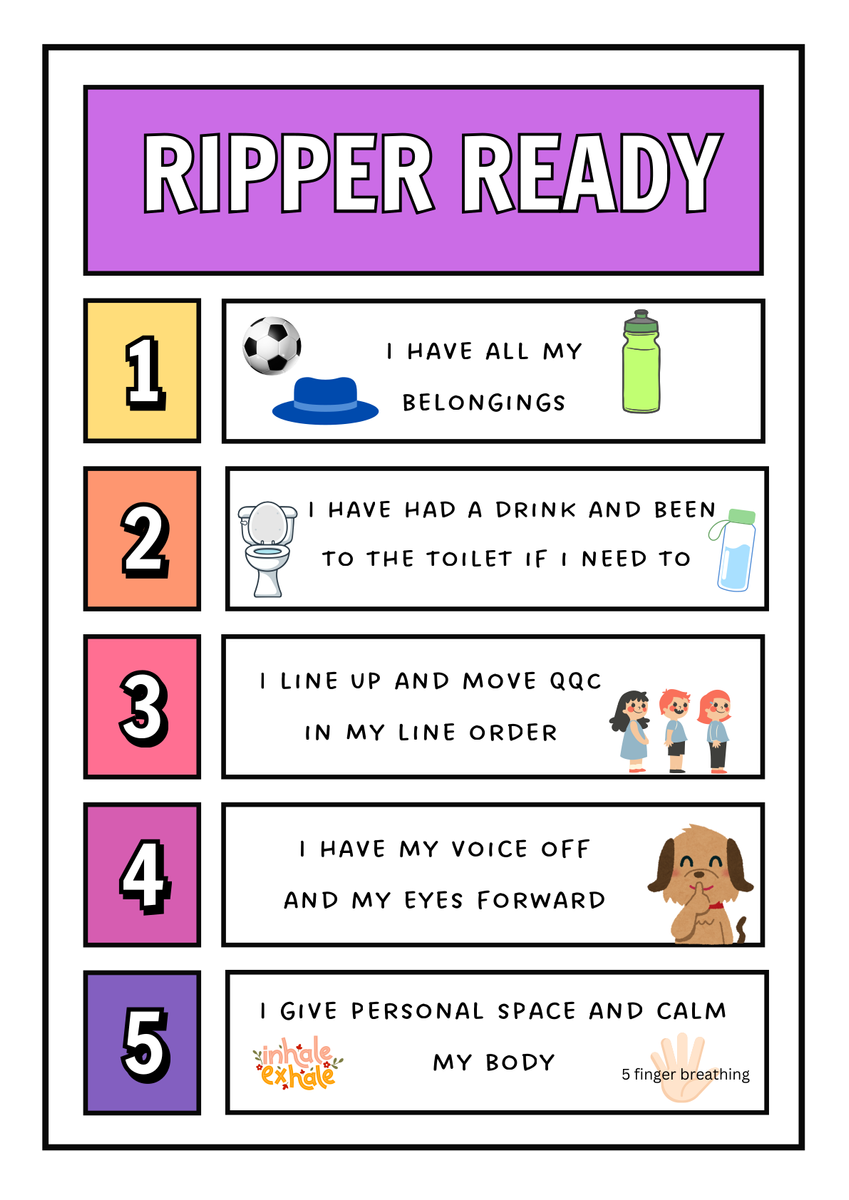
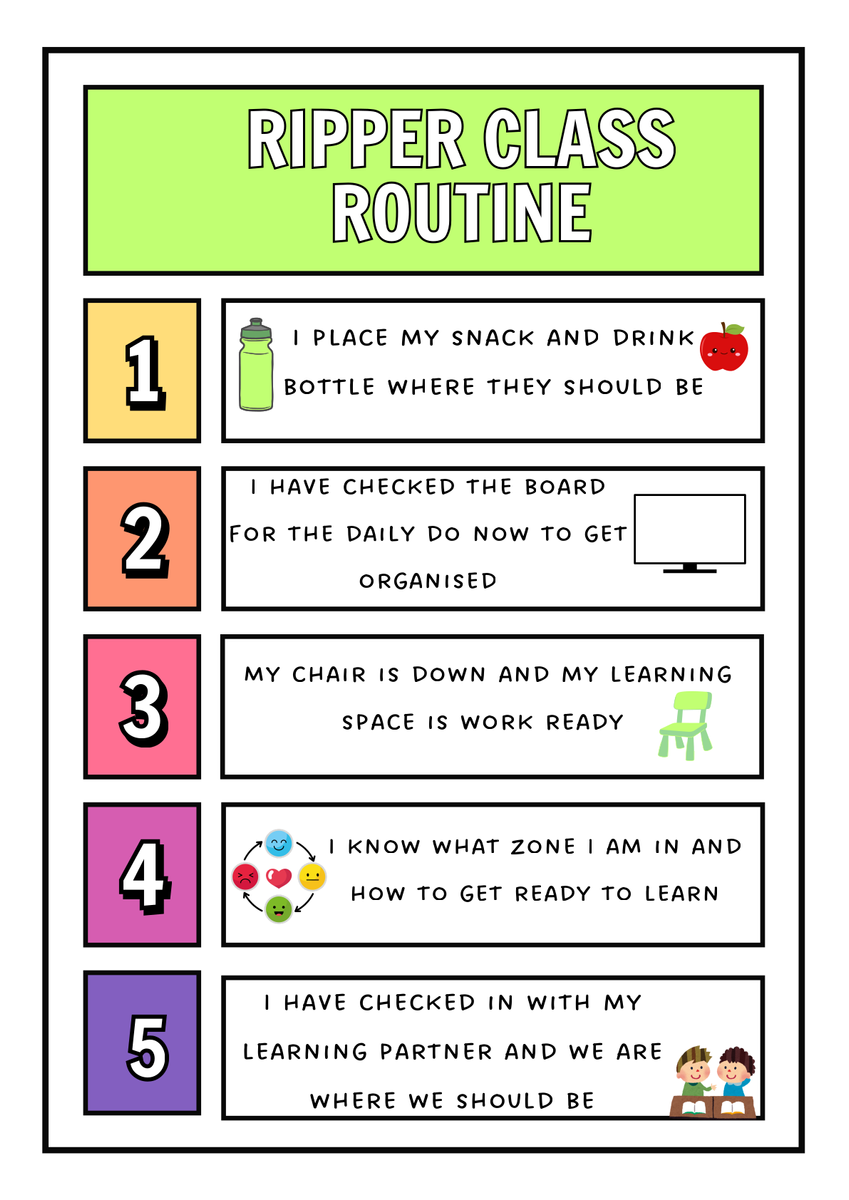


“We have developed school-wide routines for transitioning from inside to outside and for ready-to-learn classrooms because we believe these help students take ownership of their learning journey. These structures build the independence and organisation students need to succeed at school and beyond.”— Natalie Rose, Principal
By teaching and reinforcing these routines every day, Ripponlea is creating a calm and productive learning environment where every student is set up for success.
We invite families to discuss these routines at home and encourage their children to practise being Ripper Ready in all aspects of their lives.
At Ripponlea Primary School, we believe that students are at the heart of everything we do. Their voices matter—whether they’re in Foundation or Year 6—and we are committed to listening, reflecting, and continually improving their school experience based on their feedback.
One of the key ways we do this is through student perception surveys, which allow our learners to tell us how they feel about their classroom, their relationships with teachers and peers, their learning, and their overall wellbeing.
Each year, students in Years 4 to 6 take part in the Attitudes to School Survey (AtoSS), developed by the Department of Education and administered via ORIMA Research. This completely anonymous survey gives students the opportunity to share their honest thoughts about:
The feedback from AtoSS is summarised and used to inform our school’s planning, wellbeing programs, and classroom strategies, ensuring that student experiences directly shape our next steps.
While younger students in Foundation to Year 3 do not participate in AtoSS, their opinions are just as valuable. At RPS, we use the PIVOT Student Perception Survey across all year levels to hear from our youngest learners in a developmentally appropriate way.
The PIVOT framework allows students to reflect on:
Teachers use this information to make small but powerful changes in their teaching, creating classrooms that are supportive, inclusive, and engaging.
By actively listening to students through AtoSS and PIVOT, we continue to build a strong culture of trust, reflection, and improvement. These tools ensure every child at Ripponlea has a voice—and that voice helps guide our direction.
We want to extend a heartfelt thank you to our incredible House Captains for leading an unforgettable Spirit Week at Ripponlea Primary School!
From energetic push-up challenges to fun dress-up days, tasty treats at the Snack Shack, and cheer-filled activities that promoted teamwork and school pride—this week was filled with laughter, participation, and a true sense of house spirit.
What made this Spirit Week even more special was the importance of understanding our house names and mascots. These names, gifted to us by the Bunurong Land Council, reflect our deep respect for and connection to First Nations culture and history.
They serve as a meaningful reminder that our school stands proudly on Bunurong land, and we are committed to honouring this heritage as a community.
Well done to our House Captains for showing strong leadership, creativity, and passion—you’ve truly elevated the spirit of Ripponlea!
Please check out their report in the Student Leadership section of this Newsletter!
At Ripponlea Primary School, we know that life can sometimes present unexpected or unsettling events – and children, just like adults, can have strong emotional reactions to these experiences.
Whether it’s something they’ve witnessed in the community, at school, or even heard about in the news, it’s completely natural for children to feel confused, worried, or unsure how to process what has happened.
Our teachers are trained to support students with calm, reassuring conversations when these incidents occur. We’d love to share the way we approach these discussions at school, as it may help you talk to your child at home during tricky times.
How We Talk to Students After a Traumatic or Scary Event:
We keep it simple, factual and calm.
We start by stating what happened in a very straightforward way. No dramatic language, no assumptions about how everyone feels — just the facts. For example, we might say: “There was an unknown person on the school grounds today. The teachers followed our safety procedures to make sure everyone was safe.”This helps avoid fuelling unnecessary fear or confusion.
We acknowledge how unusual and unsettling it was.
We let students know it’s okay to feel unsure or even scared. We might say: “That was something out of the ordinary, and it may have felt a bit scary or surprising. That’s a very normal reaction.”This helps children feel understood without telling them what they should feel.
We talk about the brain space it takes up – and how that changes.
Often, we’ll say: “It’s normal if your brain keeps going back to what happened – that means it feels like a big deal right now. Over time, that big feeling will take up less space and you won’t think about it as much.”This gives students hope and a sense of perspective.
We explain the safety measures that worked.
Children feel reassured when they understand the steps that were taken to protect them. We might talk about how staff acted quickly, how a lockdown procedure kept everyone out of harm’s way, and how the police responded.“Your teachers are always looking out for your safety. When we went into lockdown, it meant we could keep you safe and out of the way of any danger.”
We teach them how to keep themselves safe.
Empowering students is important. We talk about the choices they can make to keep themselves safe every day:
Never approach someone they don’t know
We focus on what’s in their control.
We help students understand that there are some things they can’t control (like someone unexpectedly coming onto school grounds), but there are many things they can do to stay safe and support others.“You can’t control what other people do, but you can control how you respond, who you talk to, and how you look after yourself.”
These conversations are delivered with warmth and care. We try to balance honesty with reassurance — always ending on the note that students are safe and that the adults around them are here to help.
We know every family is different, and children may open up at different times or in different ways. If your child is struggling with something they’ve seen or heard, and you’re not sure how to respond, please don’t hesitate to reach out to your child’s teacher or our wellbeing team. We’re here to help guide these conversations and support your family.
Together, we can help children feel safe, heard, and empowered — even when life throws up an unexpected challenge.
A huge congratulations to all the students who proudly represented Ripponlea Primary School at the recent District Cross Country event. We are incredibly proud of your effort, sportsmanship, and determination on the day.
A special shoutout goes to those students who have qualified for the Divisional Cross Country – what an outstanding achievement! We wish you the very best as you prepare to compete at the next level.
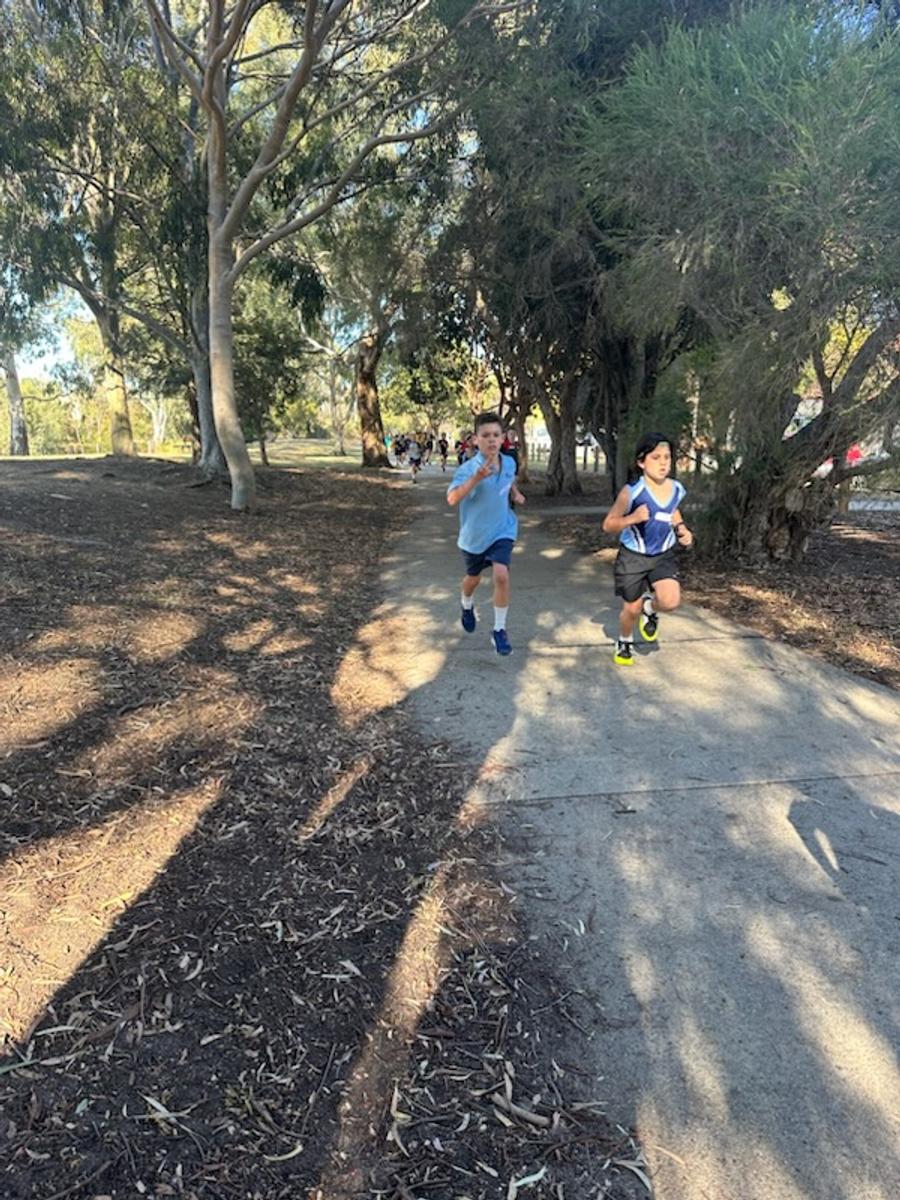
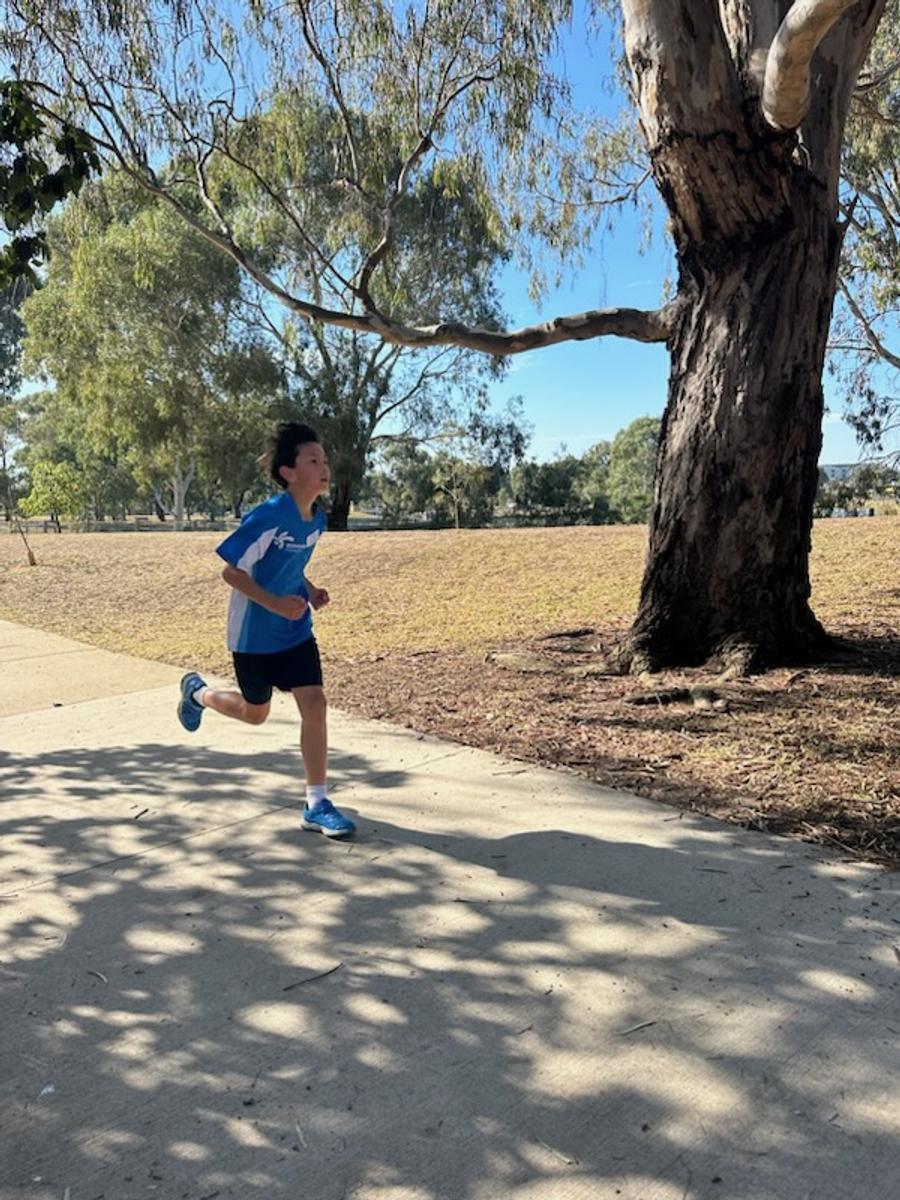
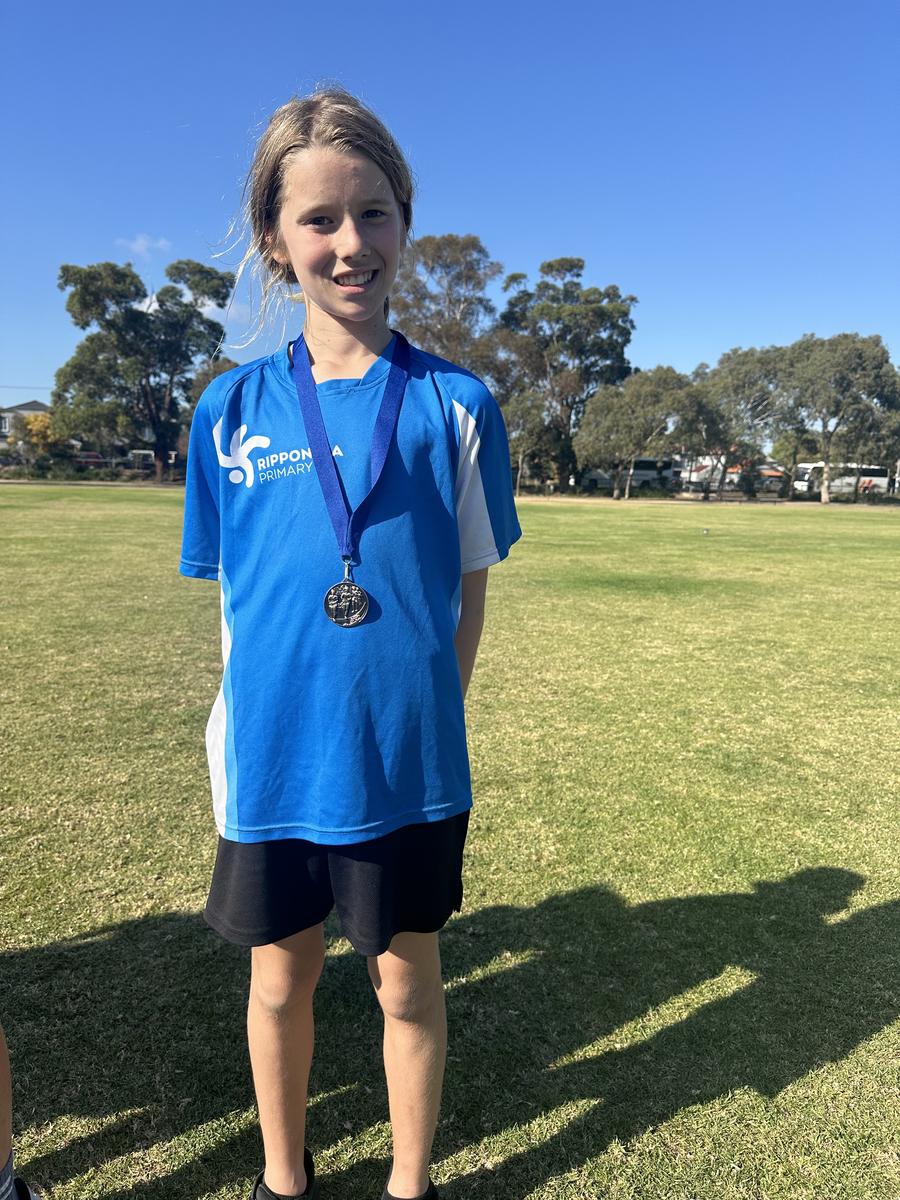
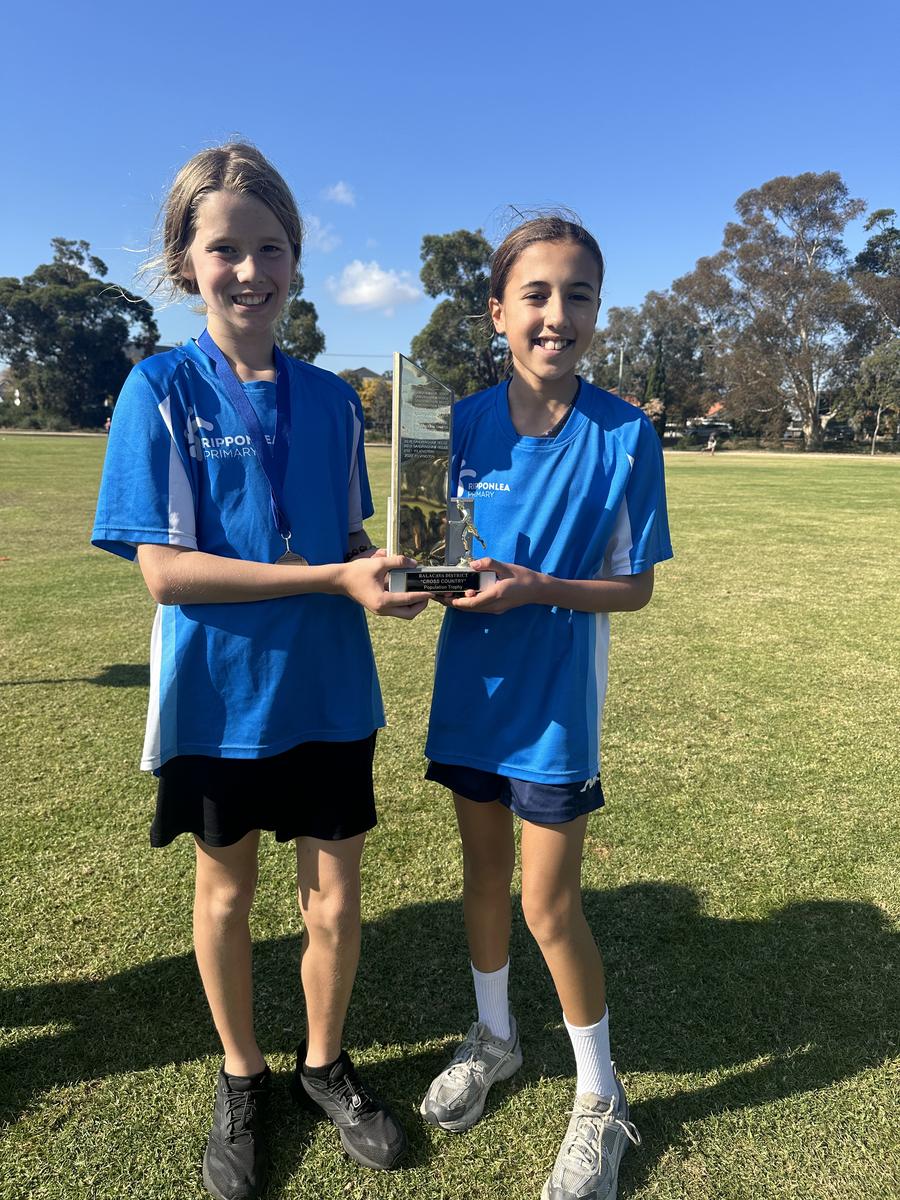
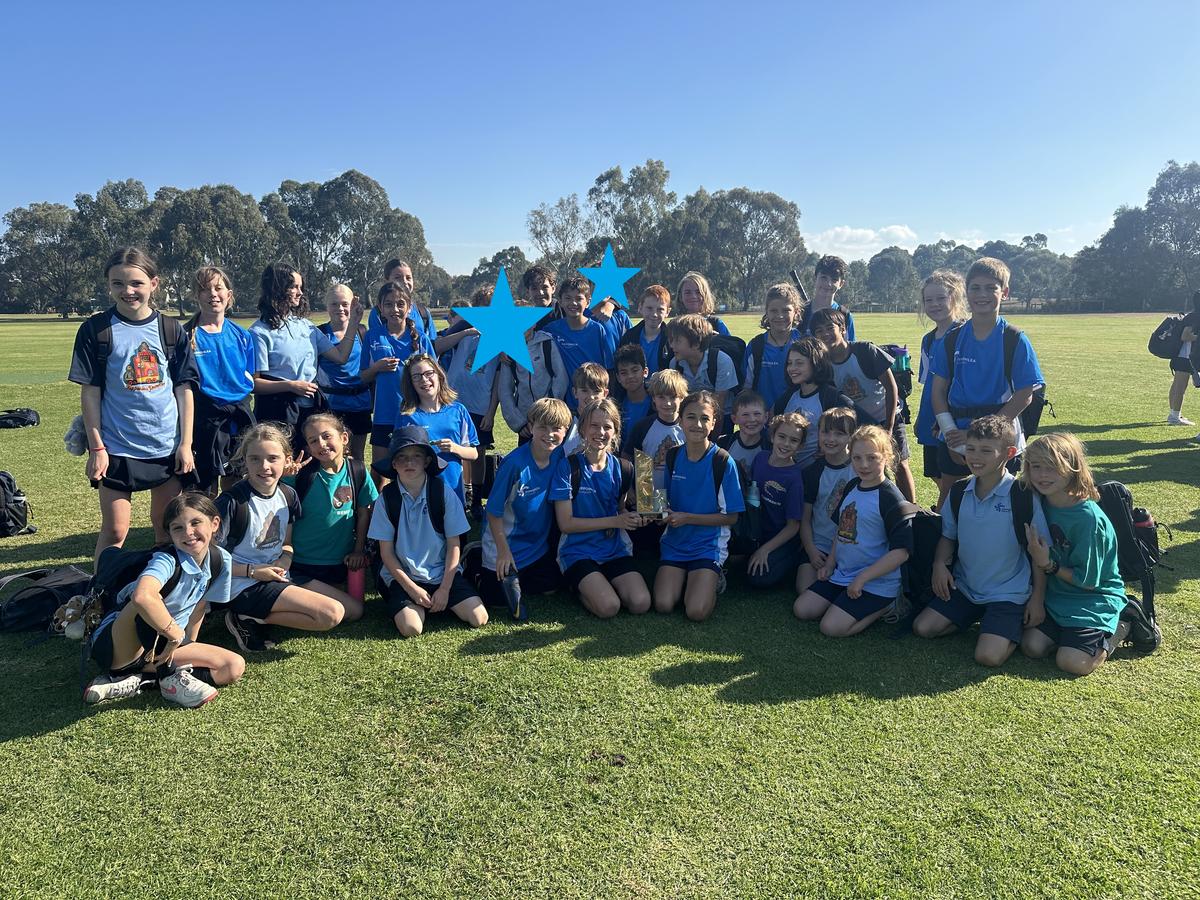





Your commitment to training and your positive attitude are a true reflection of the RPS spirit.
Well done, team! 🏃♀️🏃♂️👏
This will be a regular termly feature in the RPS newsletter.
Did you know that RAP stands for Reconciliation Action Plan? This is a formal commitment to reconciliation between us and the First Nations People. The Narragunnawali RAP framework outlines a whole-school approach to driving reconciliation by building relationships, respect and opportunities in the classroom, around the school and with the community. Actions have already been set in motion primarily focussed on the cultural responsiveness of students and staff including members of our School Council.
There is much more to be addressed and completed over the following months. Here are a few activities taking place this week:
National Sorry Day 26 May remembers and acknowledges the mistreatment of Aboriginal and Torres Strait Islander people who were forcibly removed from their families and communities, which we now know as ‘The Stolen Generations’. In class, students will be discussing this in an age-appropriate manner. Texts include ‘Sorry’ by Coral Vass and ‘Took the Children Away’ by Archie Roach.
National Reconciliation Week 27 May – 3 June
It’s a big week in Australia. It’s National Reconciliation Week with the theme ‘Bridging now to next’ and is a time for all Australians to learn about our shared histories, cultures, and achievements, and to explore how each of us can contribute to achieving reconciliation in Australia.
Each class has been working on its own ‘Acknowledgement of Country’ and reading First Nations stories.
The students have been working on a special project both in the classroom and in Performing Arts. They have been learning and understanding the lyrics of ‘Solid Rock’, written by Shane Howard. This song, Solid Rock released by Goanna in 1982 was a call to action to the broader Australian community to understand the truth of our history and the importance of land rights. It became a classic Australian anthem, as relevant today as it was on its release.
This Friday, at assembly, all Rippers will be singing the song in unison during assembly. We invite you to come and watch, listen and perhaps even participate in this special event.
We hope you can join us.
Julie Nield
Marrung School Champion & RAP Committee Member
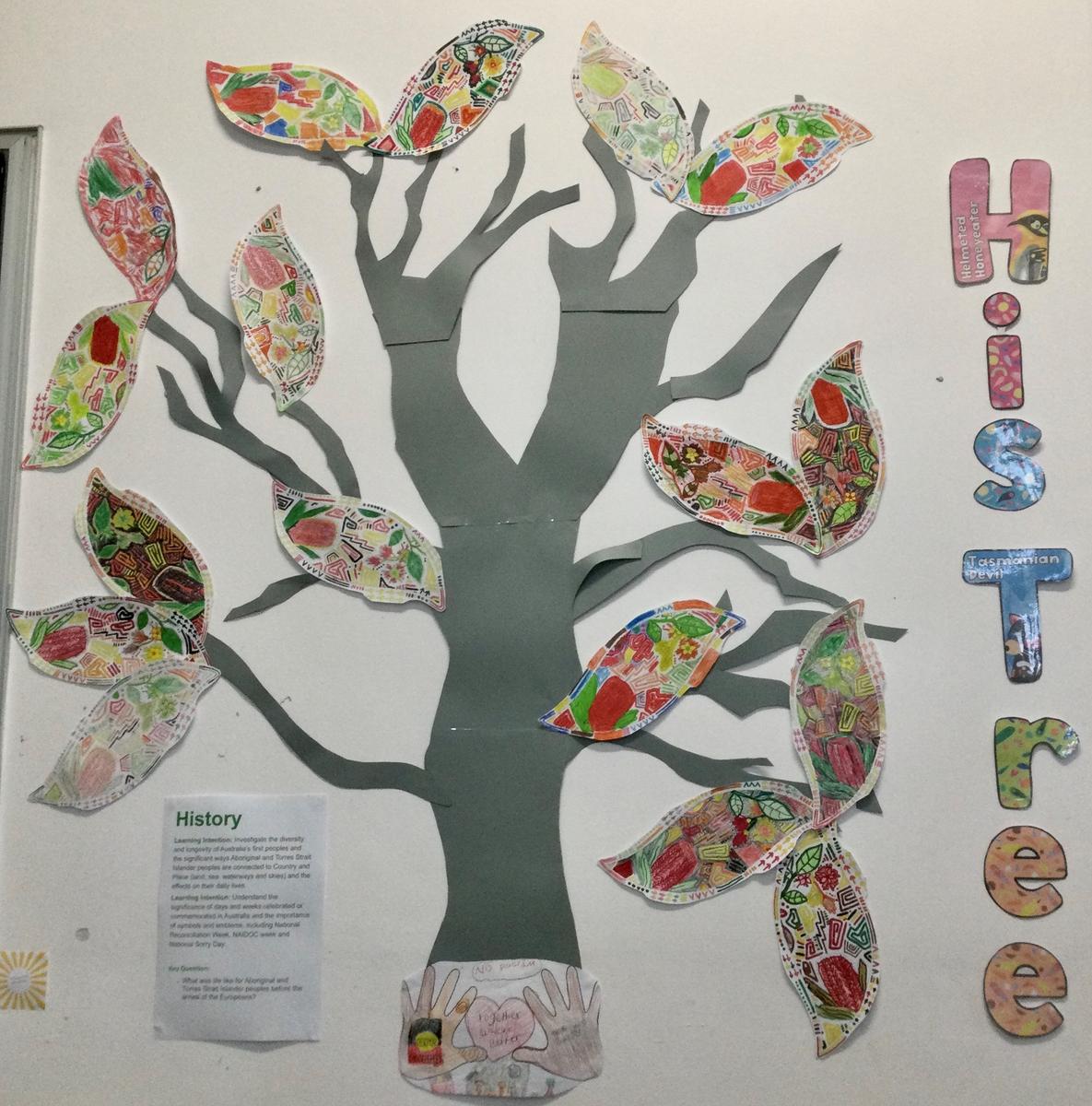
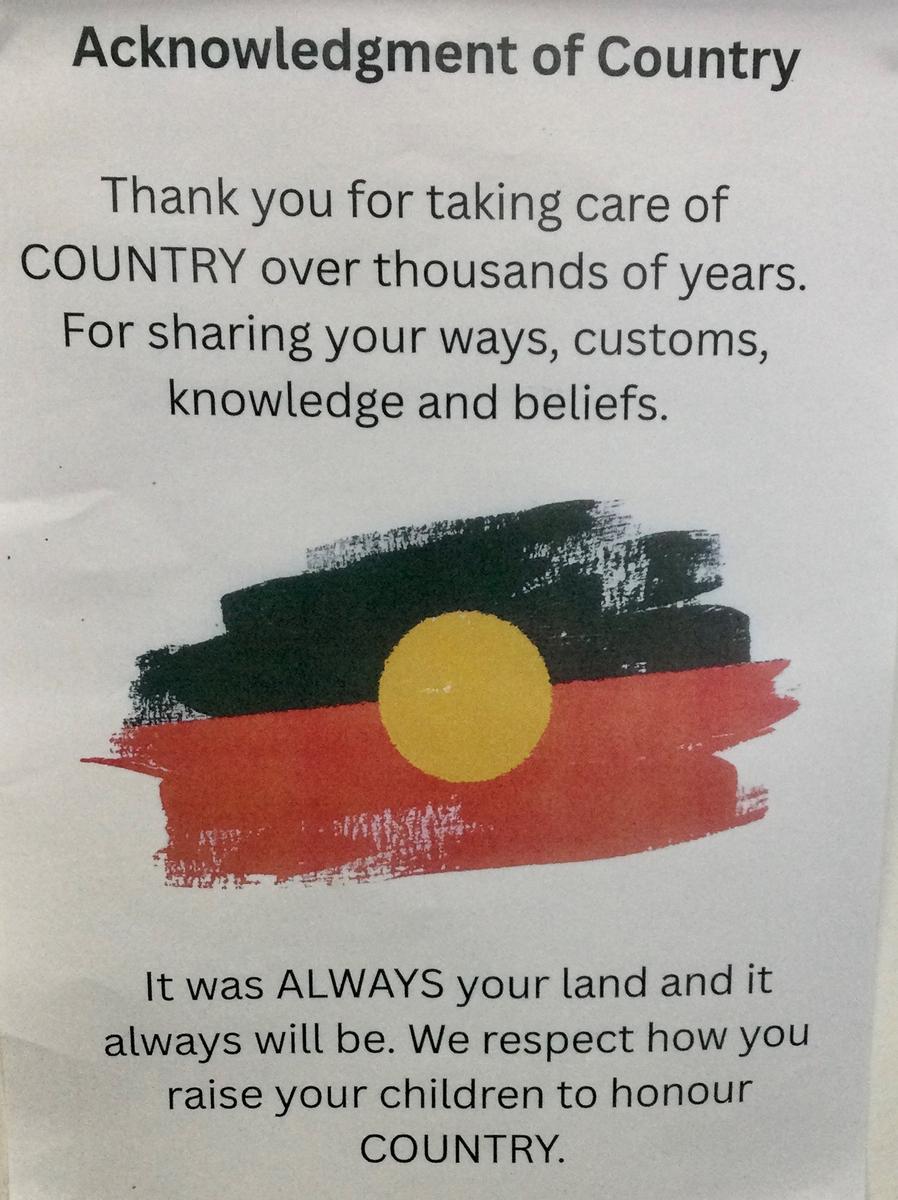


As part of their Unit of Inquiry, our Foundation students have been exploring the concept of community and learning about the special people who help keep us safe and supported. At school, this includes familiar faces like teachers, buddies, and other trusted adults – but our young learners have also been curious about the important roles people play outside the school gates.
Last week, excitement filled the air as the local fire brigade paid a special visit to Ripponlea Primary School. This experience formed part of the Fire Ed safety program, designed to teach children about fire safety, emergency preparedness, and the role of emergency services in keeping our communities safe.
Students learned how to recognise an emergency, how to call Triple Zero (000), and what to do if they ever find themselves in a dangerous situation. Of course, the highlight for many was the hands-on experience – climbing into the fire truck, exploring the equipment, and even having a go at spraying the fire hose!
We are so proud of our Foundation learners for their curiosity, thoughtful questions, and the way they engaged so respectfully with our firefighter visitors. A big thank you to our local fire brigade for helping bring this valuable learning to life!
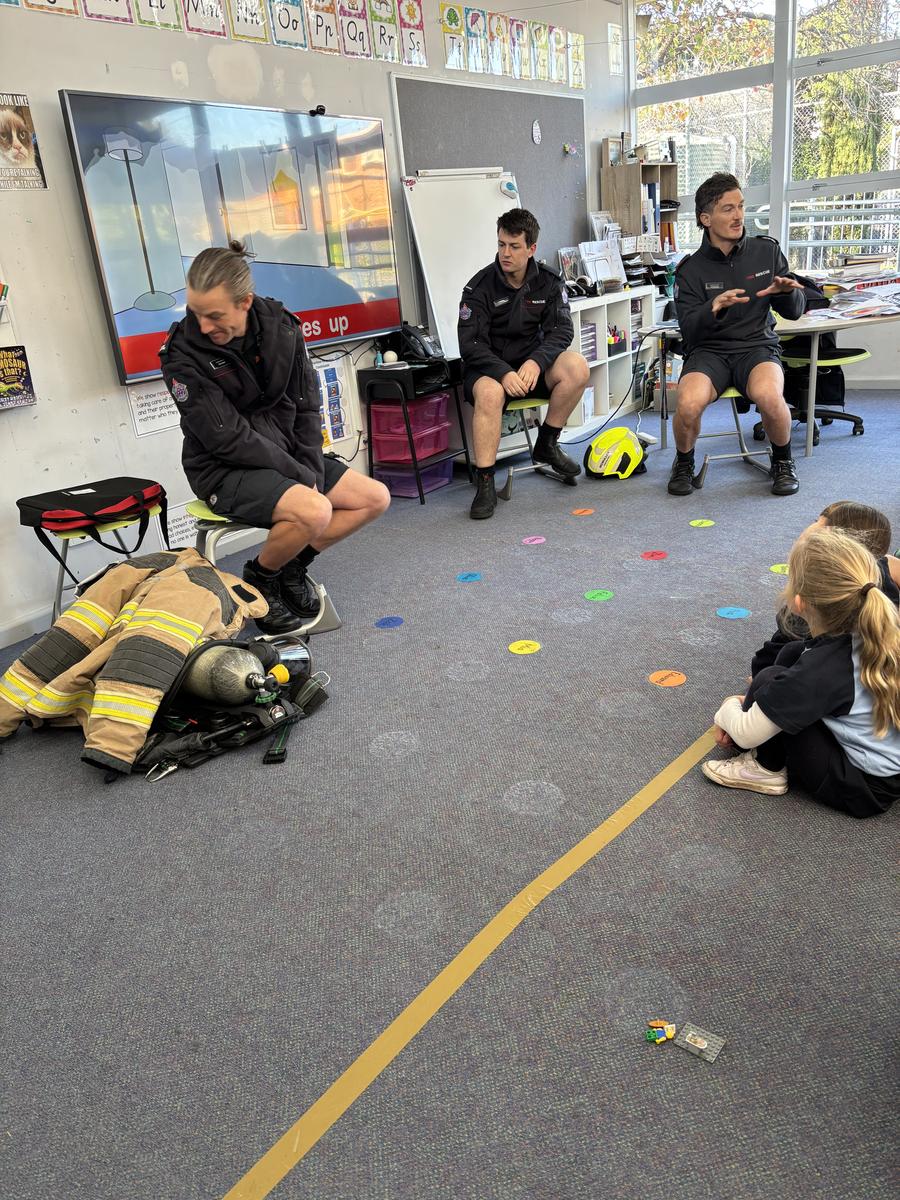
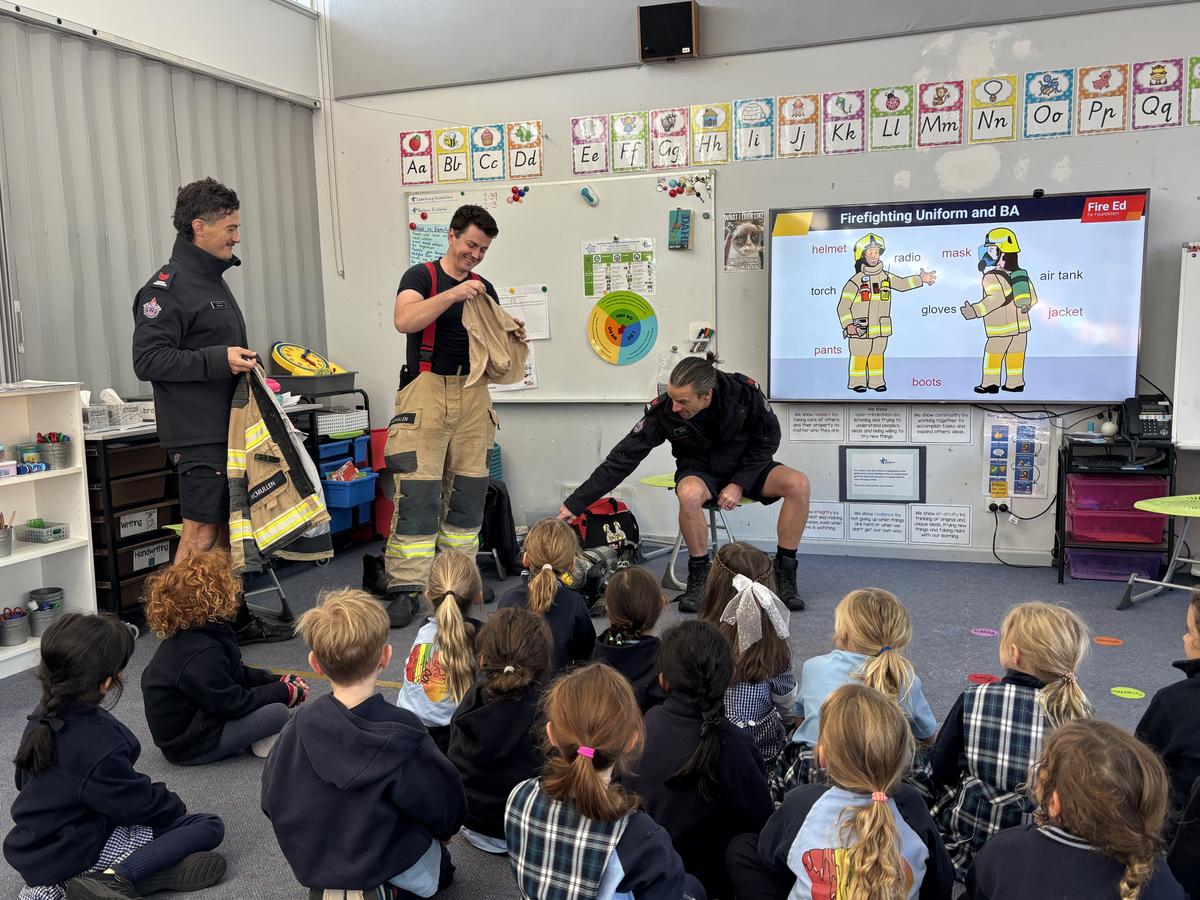
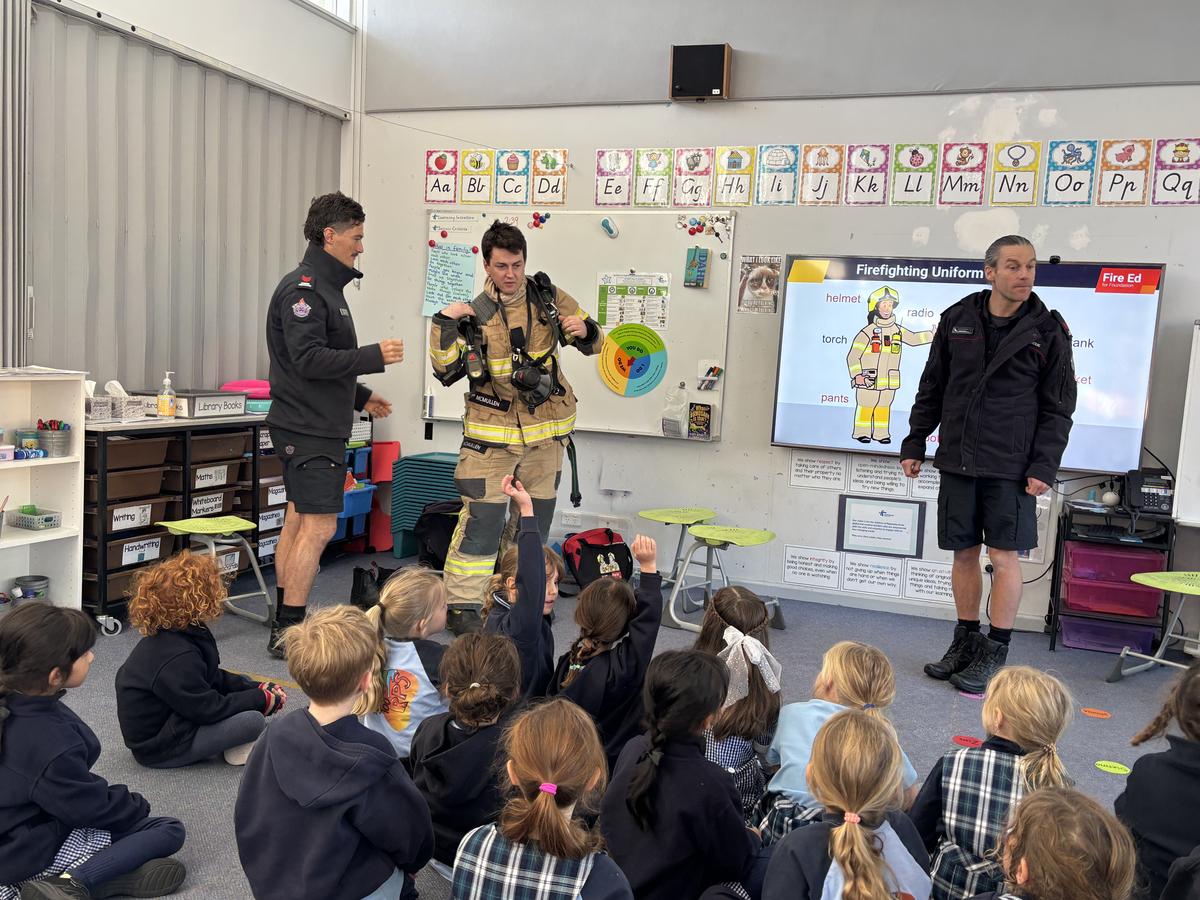
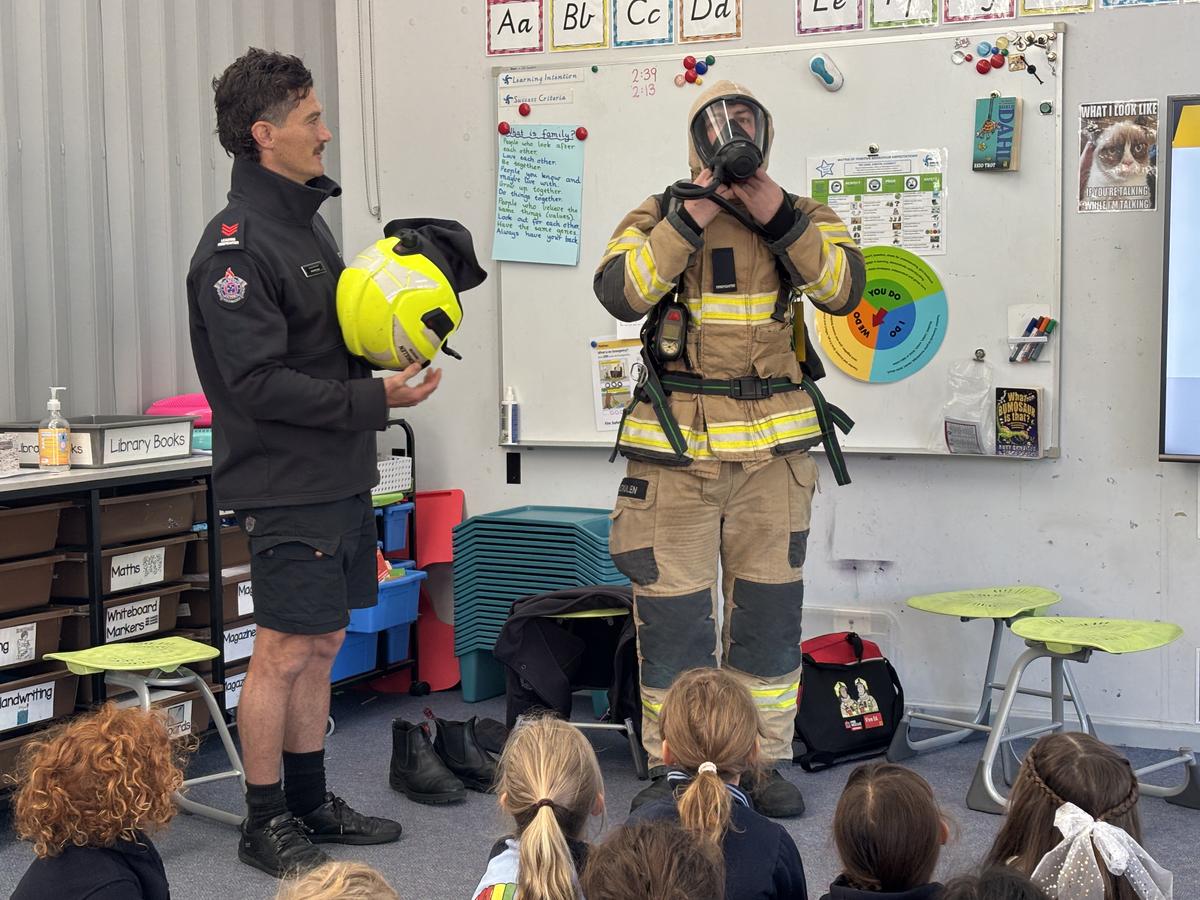
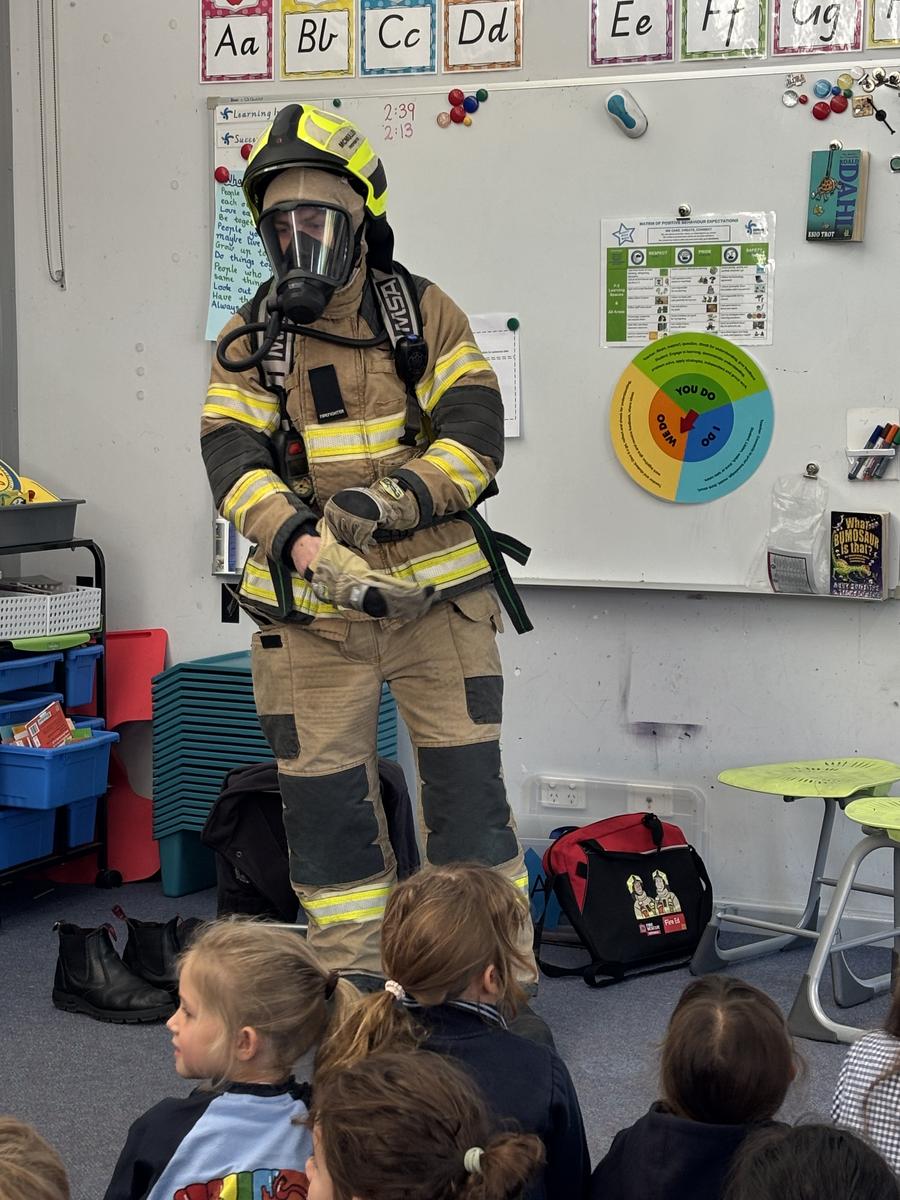
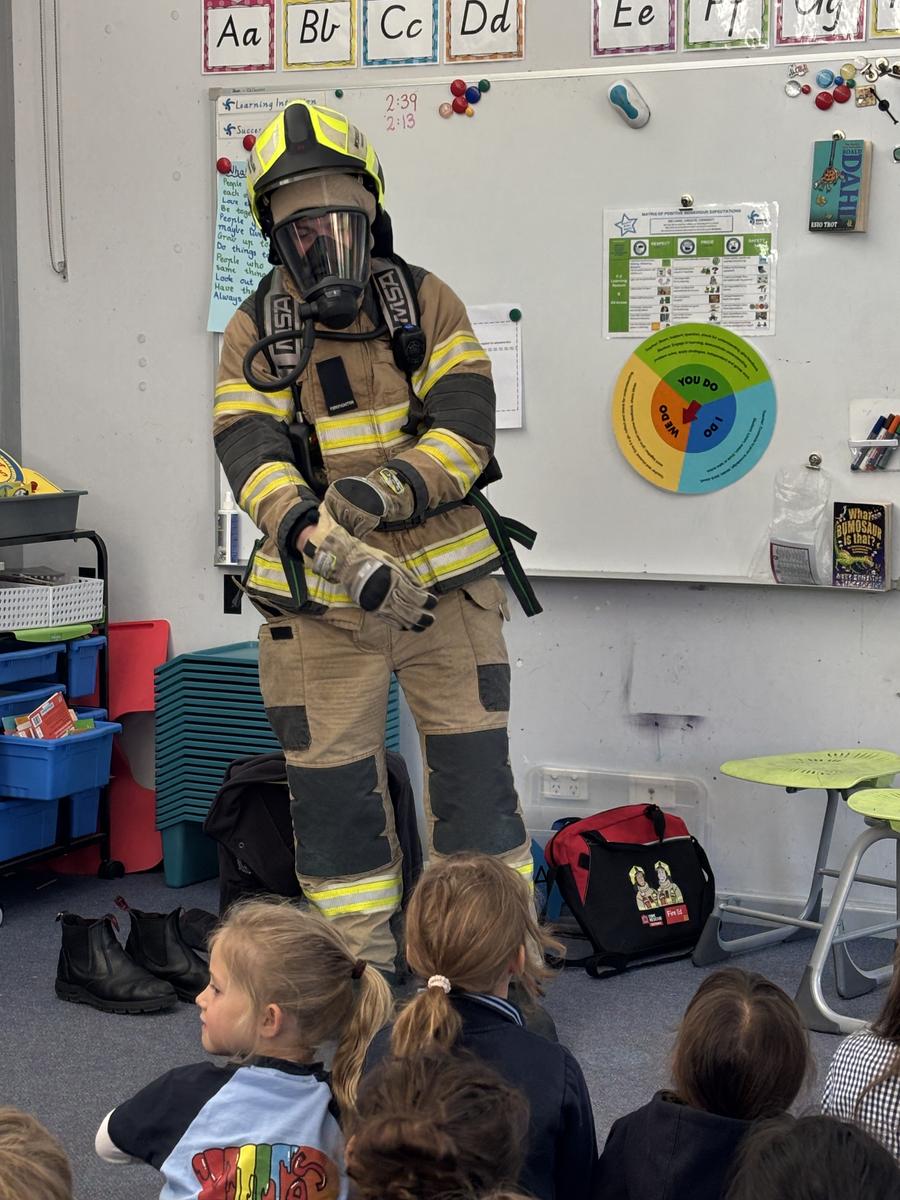
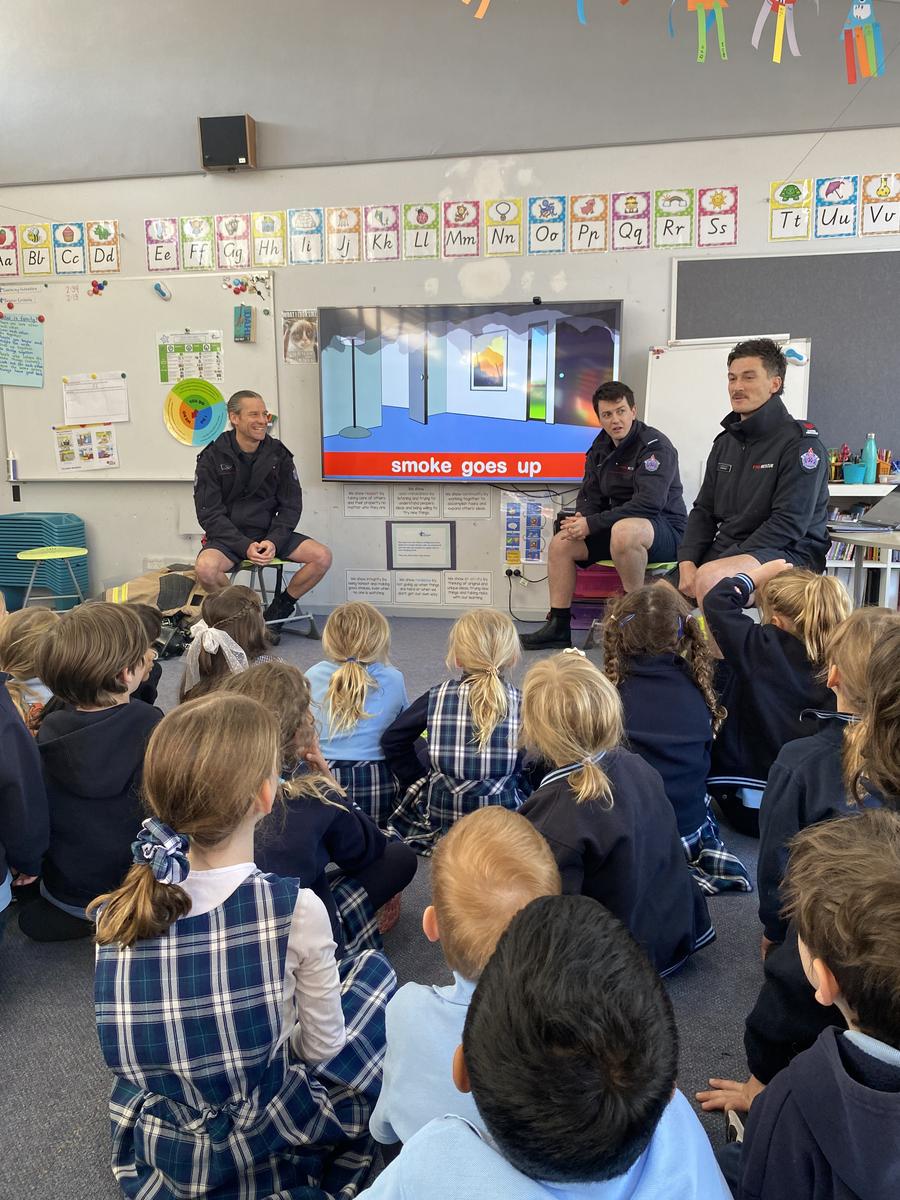
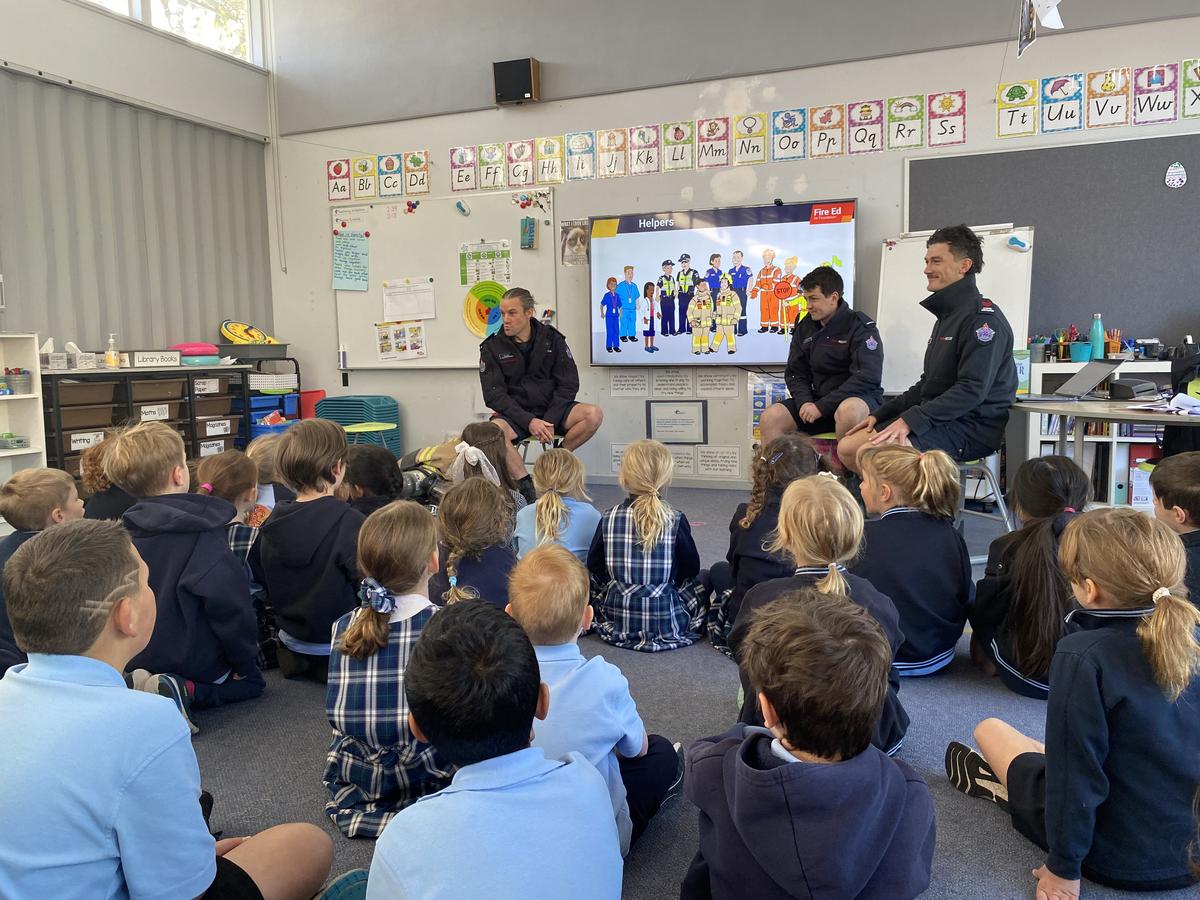
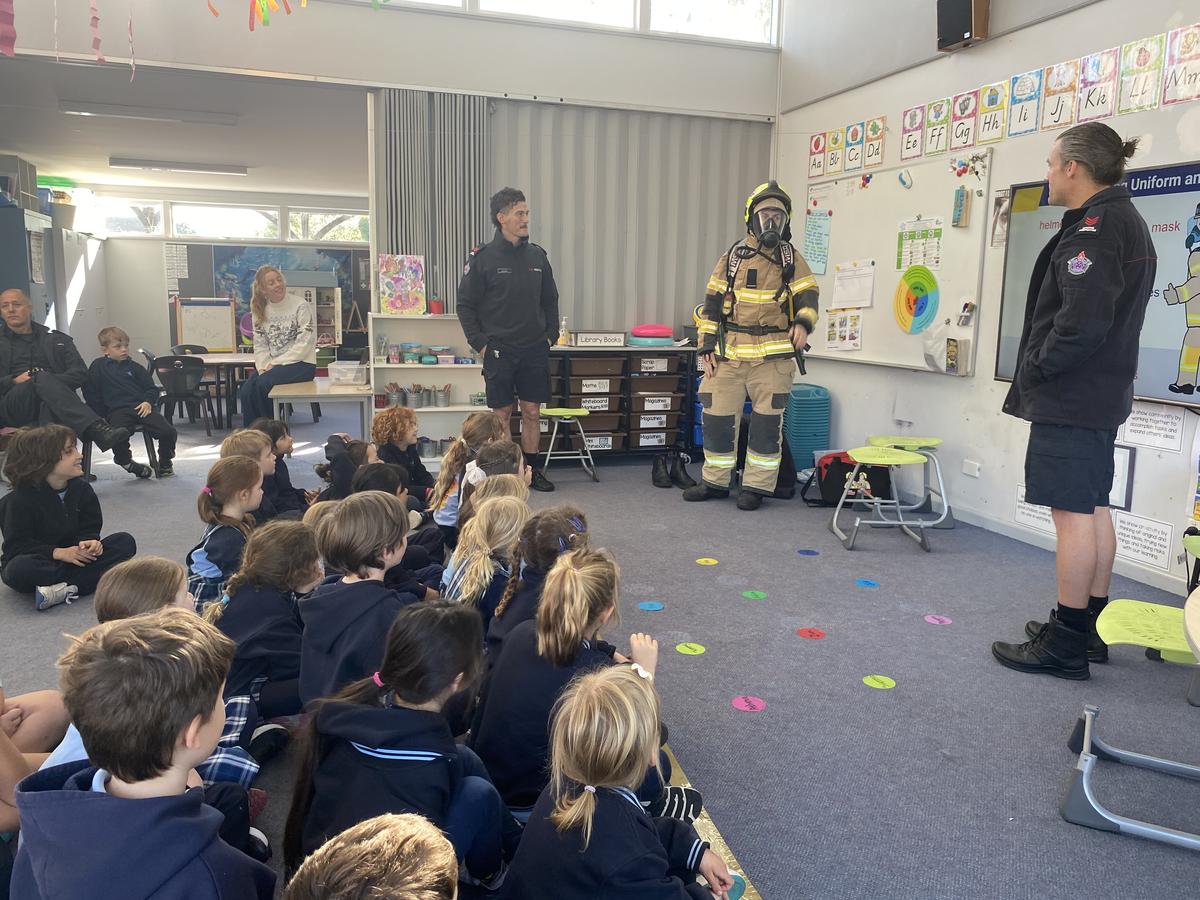
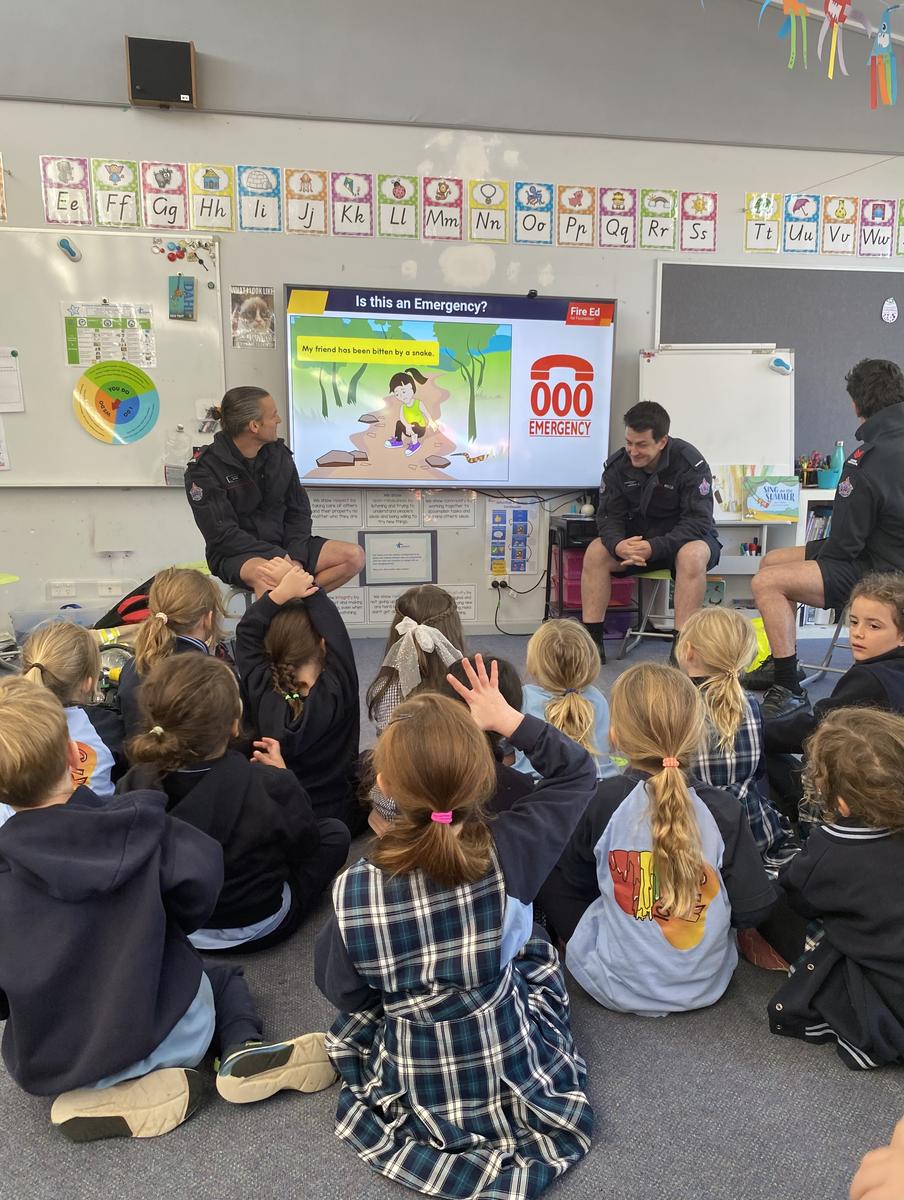
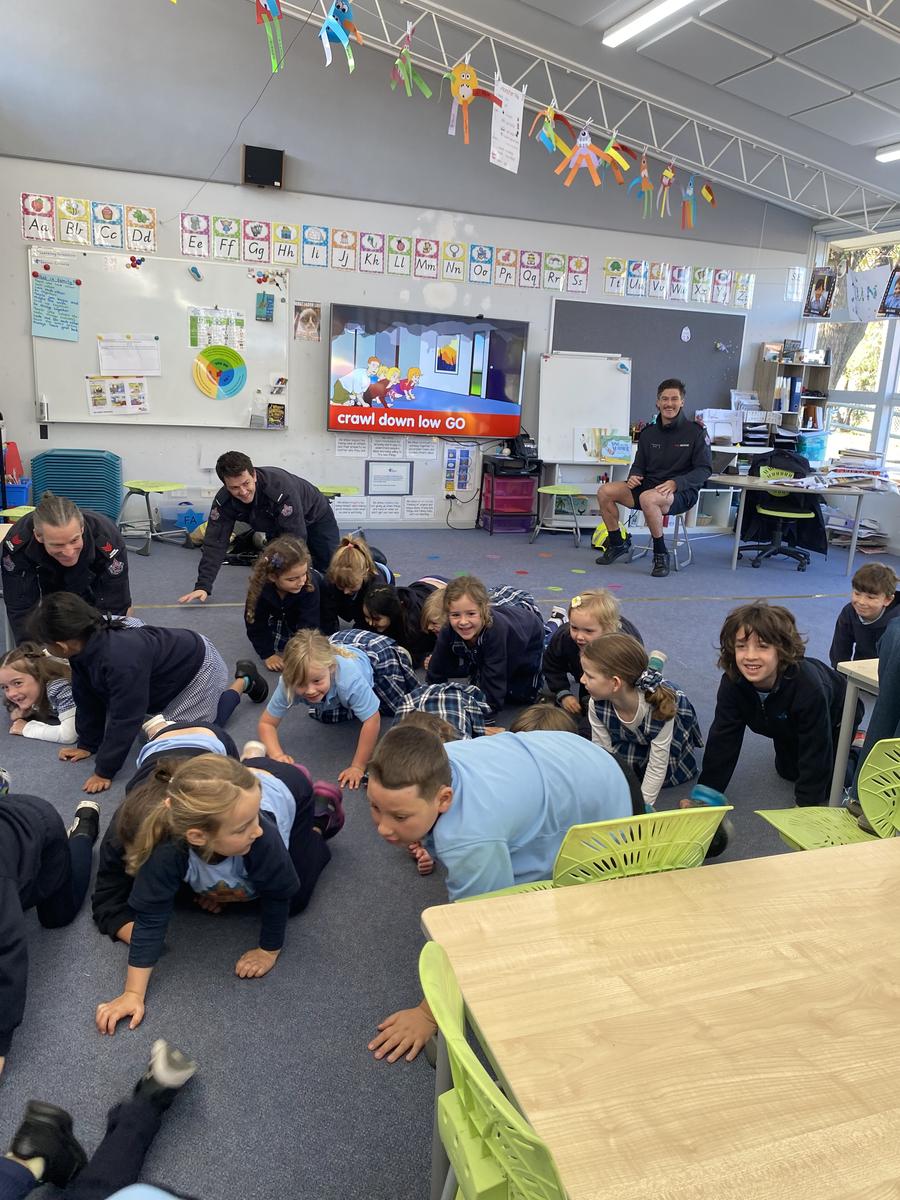











At Ripponlea Primary School, we are proud to offer rich, authentic learning experiences that ignite curiosity and creativity in every child. From dazzling theatre productions and spirited sporting events to cultural celebrations like our upcoming Japan Day in Term 3, our students are immersed in opportunities that connect them to the world around them.
We’re especially excited to announce the launch of our Artist in Residence Program, beginning next term with renowned Australian painter Daniel Butterworth!
Daniel is celebrated for his expressive portraits and bold animal artworks. A finalist in the Archibald and Moran prizes, he brings a raw, energetic style that captivates and inspires. His use of recycled materials—and even Vegemite!—will show students that creativity has no limits.
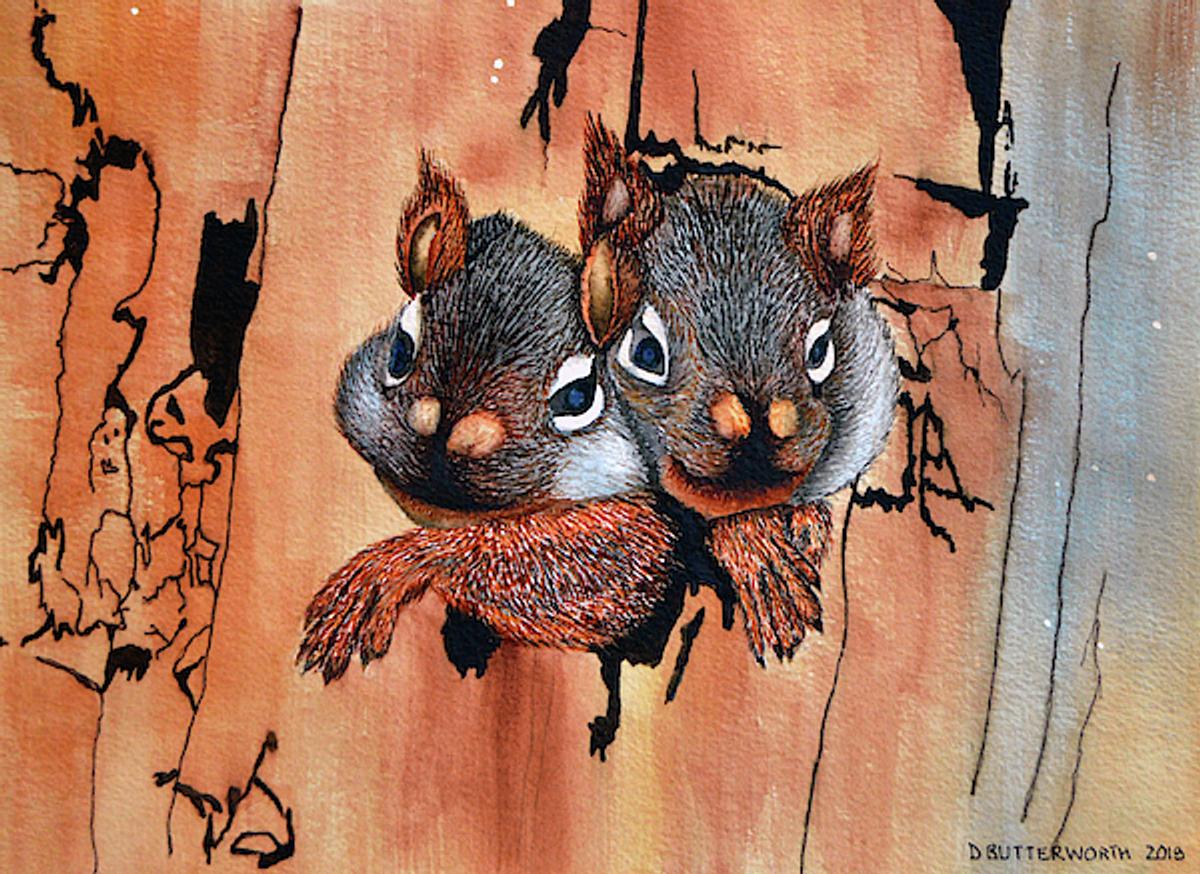
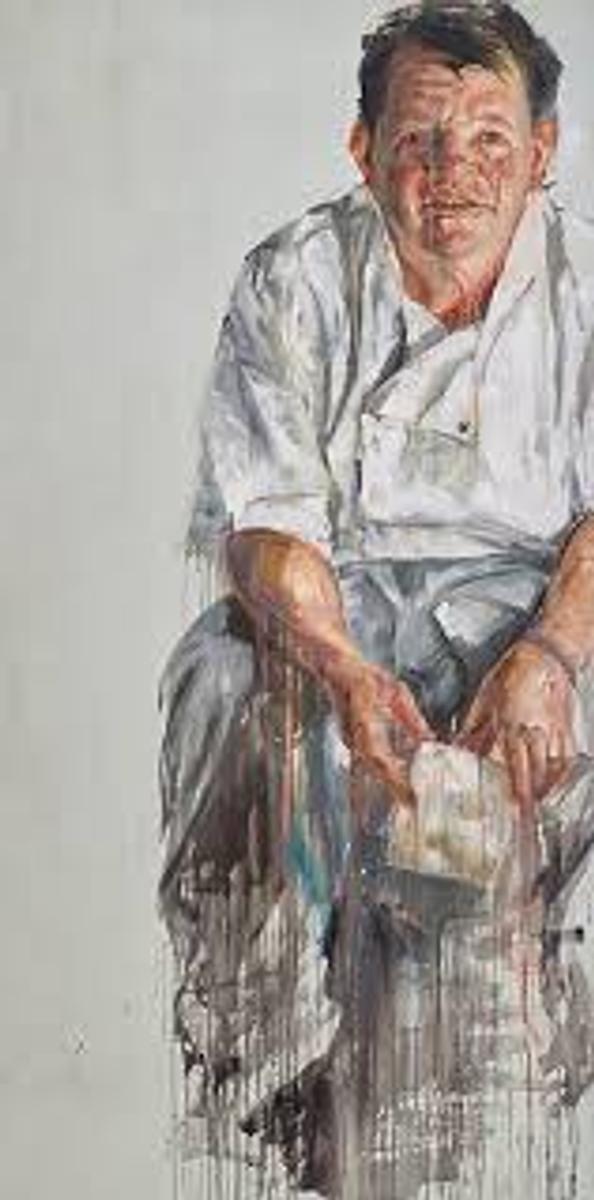
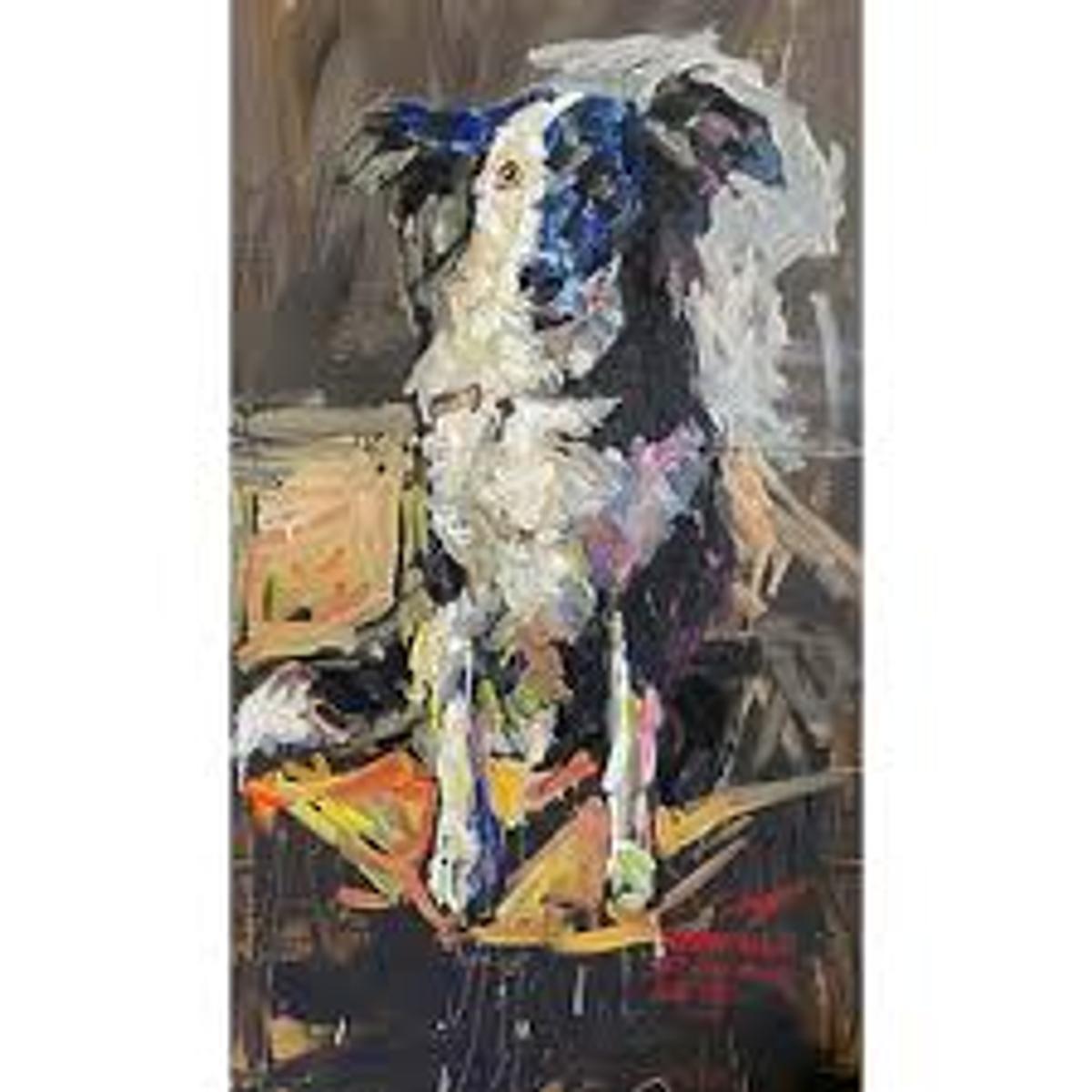
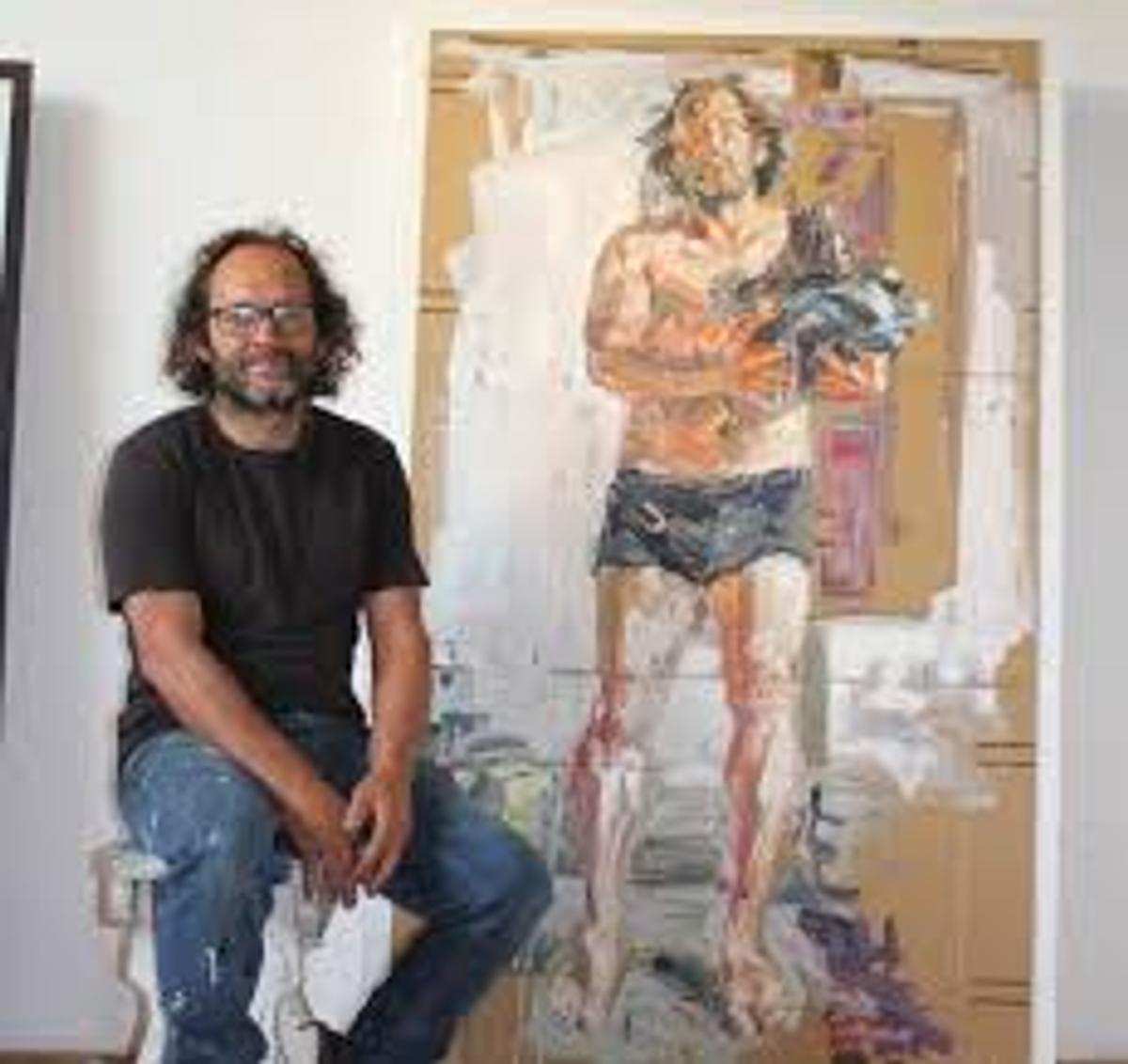




Our lucky Year 3/4 students will kick off Term 3 with four masterclasses, learning techniques in contrast, tone, composition, and colour. From mixing paint to mapping out their own masterpieces, students will create stunning animal portraits while learning through hands-on, expressive exploration.
Plus, lunchtime workshops will be open to all students who want to get involved and learn from a professional artist!
At Ripponlea, learning is more than just lessons—it’s about experiences that spark joy, imagination, and a lifelong love of discovery. We can’t wait to see the amazing art that will come to life in Term 3!
What a night to remember! Our incredible parent band The Rippoffs took to the stage at the Southside Battle of the Bands and emerged victorious! Performing with passion, energy and an eclectic mix of songs, they lit up the Fitzroy Band Room and brought the house down with their infectious spirit and talent.
The event wasn’t just about great music—it had purpose too. A portion of every ticket sold went directly to supporting the performing arts programs in participating schools. We’re proud to share that Ripponlea Primary sold the highest number of tickets on the night, a true testament to the vibrant community spirit we share, both within and beyond the school gates.
Even as a small school, our families show up, cheer loud, and rally together—and this win is a celebration of that powerful community connection. Well done to The Rippoffs and thank you to everyone who came along, danced, and supported the cause. What a brilliant way to champion creativity and school spirit!

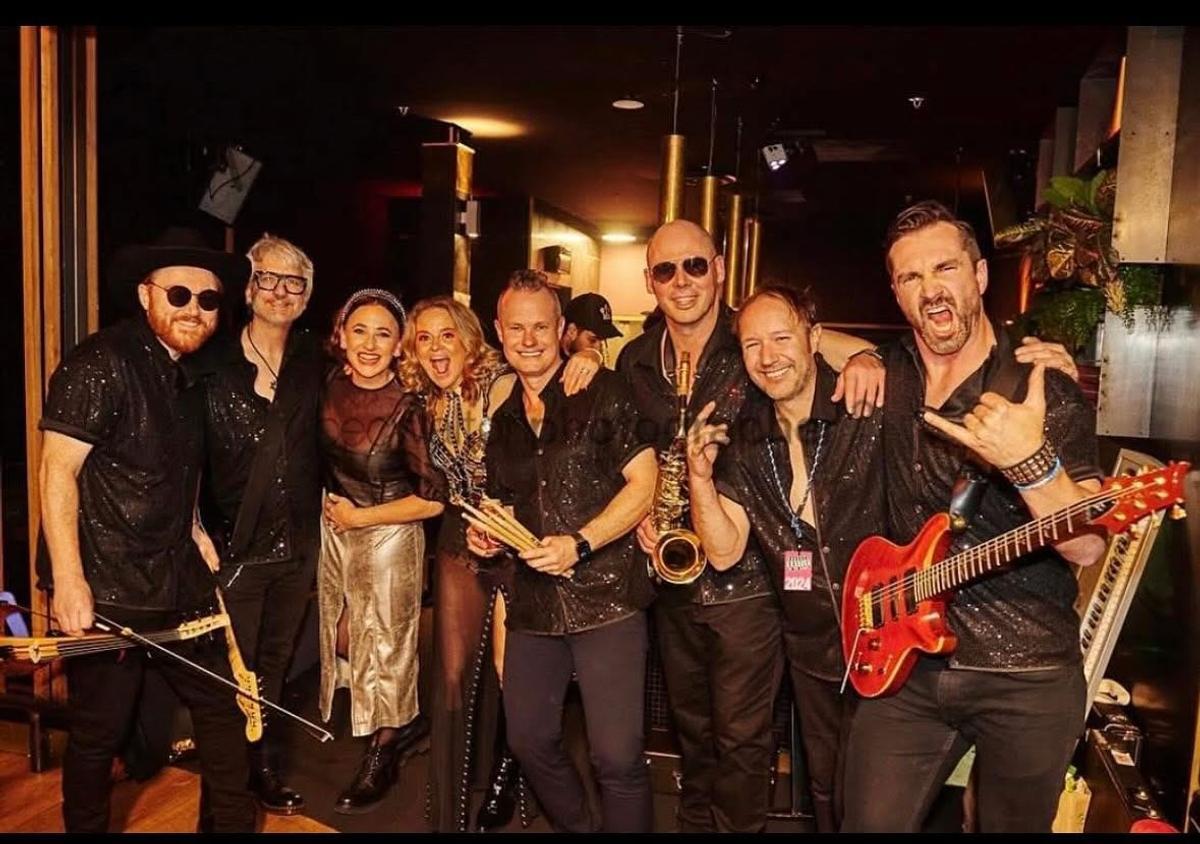


Last week, our staff came together in the art room for a purposeful wellbeing session — a chance to pause, reconnect, and recharge. Mrs Nield, who has been practising her own wellbeing through mindful beach walks, brought along a stunning collection of sea-tumbled glass she has gathered over time. These jewel-toned treasures, shaped by nature, became the centre of a creative session where staff had the opportunity to reflect and create beautiful artworks.
Why does this matter?
When we prioritise the wellbeing of our educators, we’re not just supporting the individuals who care for our students — we’re enhancing the conditions for effective teaching and learning. A well-supported and emotionally balanced staff is better equipped to foster safe, calm, and engaging classrooms.
Research shows that staff wellbeing is directly linked to student wellbeing and academic outcomes. When educators feel valued and energised, they can form stronger relationships, model positive behaviours, and create learning environments that allow every child to thrive socially, emotionally, and academically.
Take a moment to view the meaningful creations our staff made in just one hour — a reminder that moments of care and creativity ripple outward to benefit our entire school community.
Gallery walk, anyone?
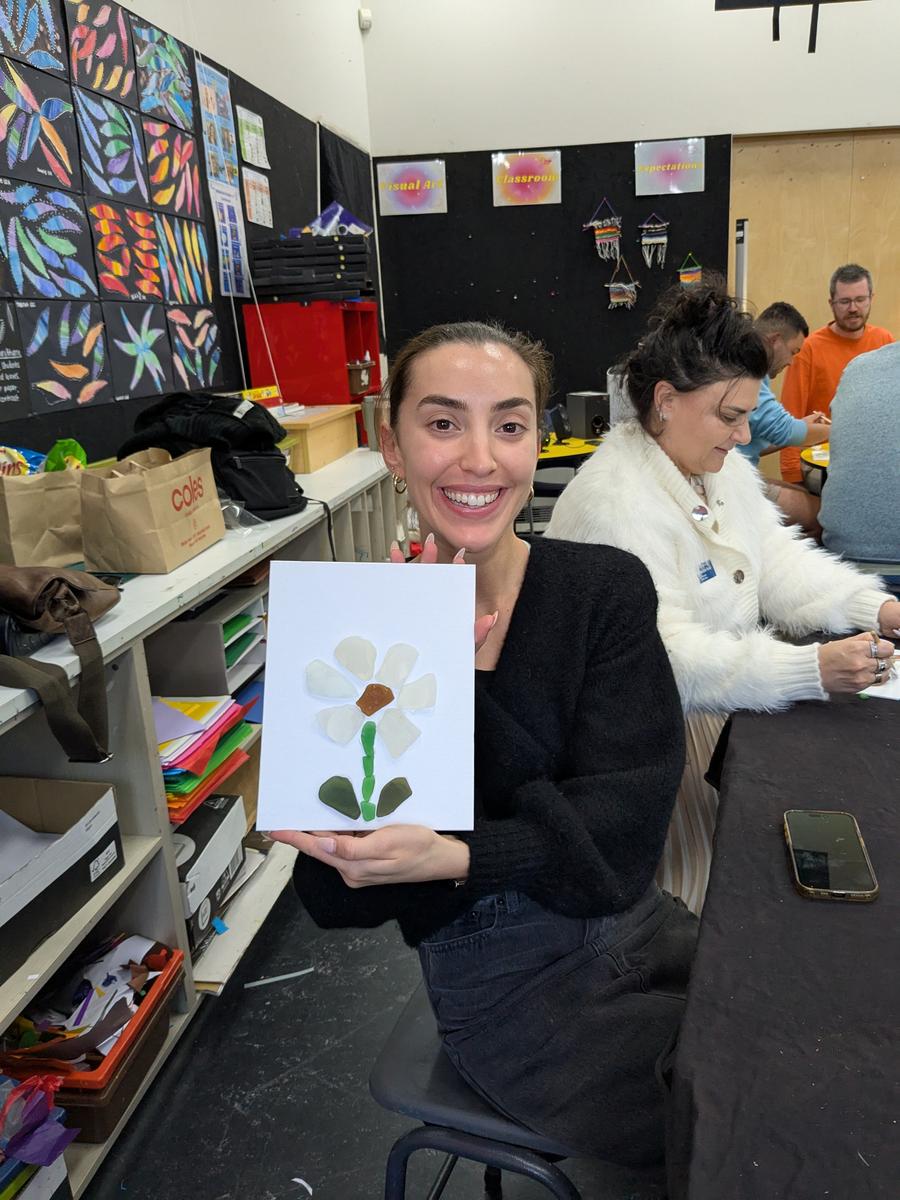
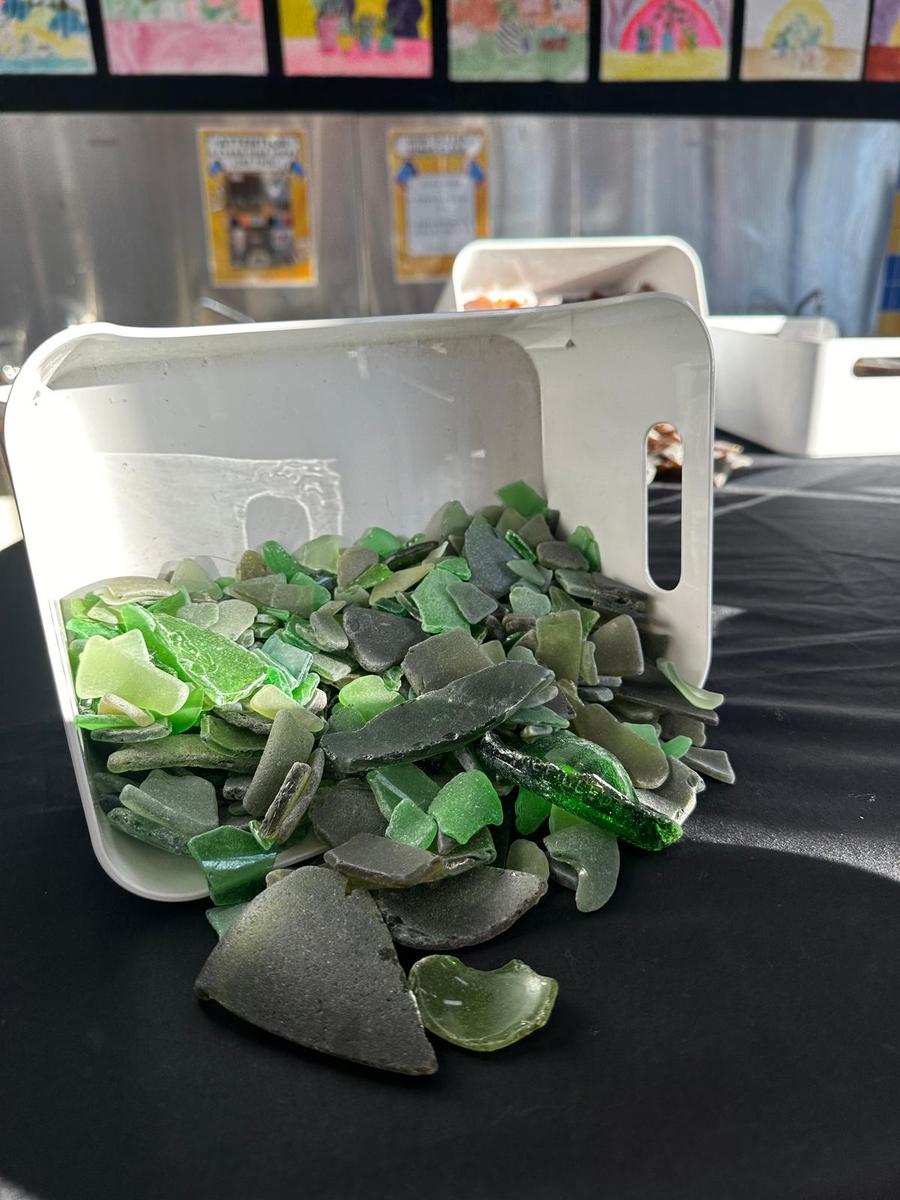
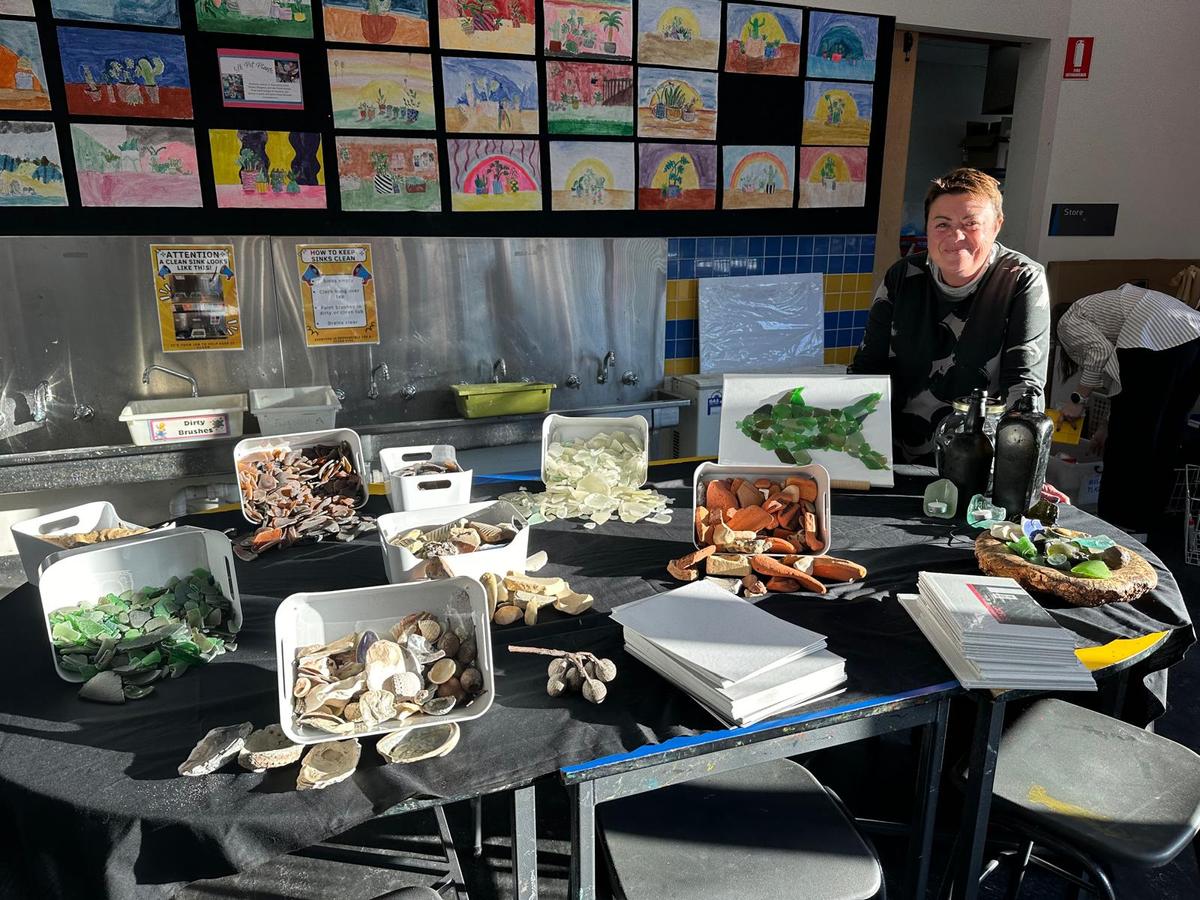
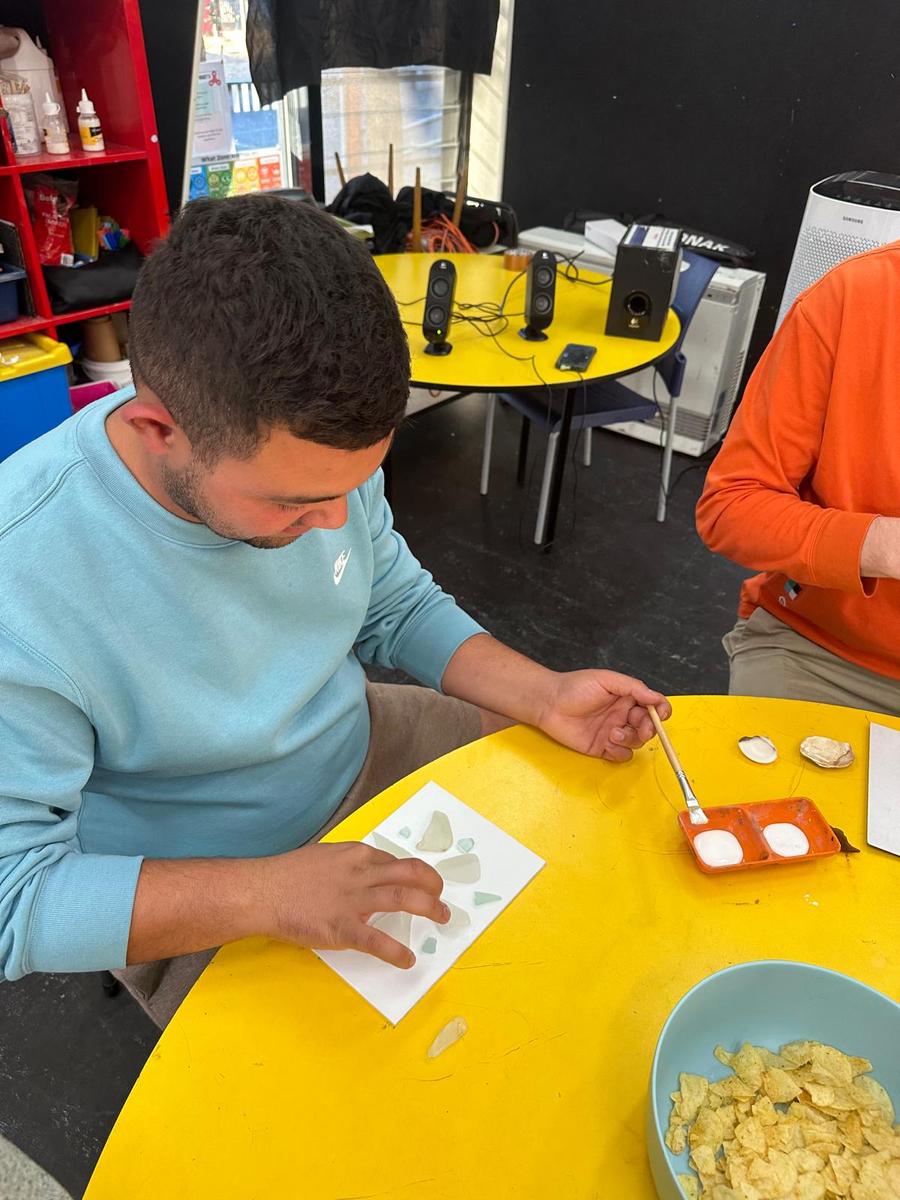
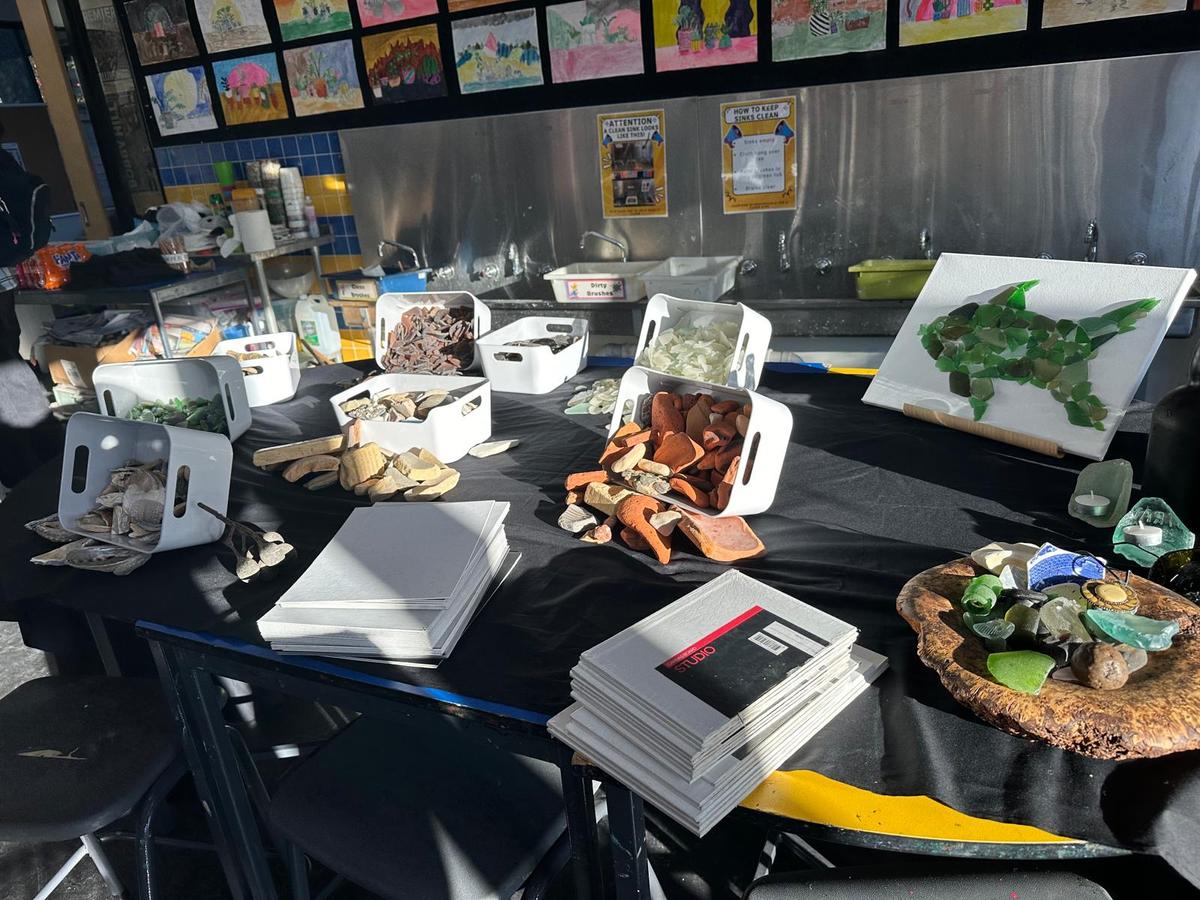
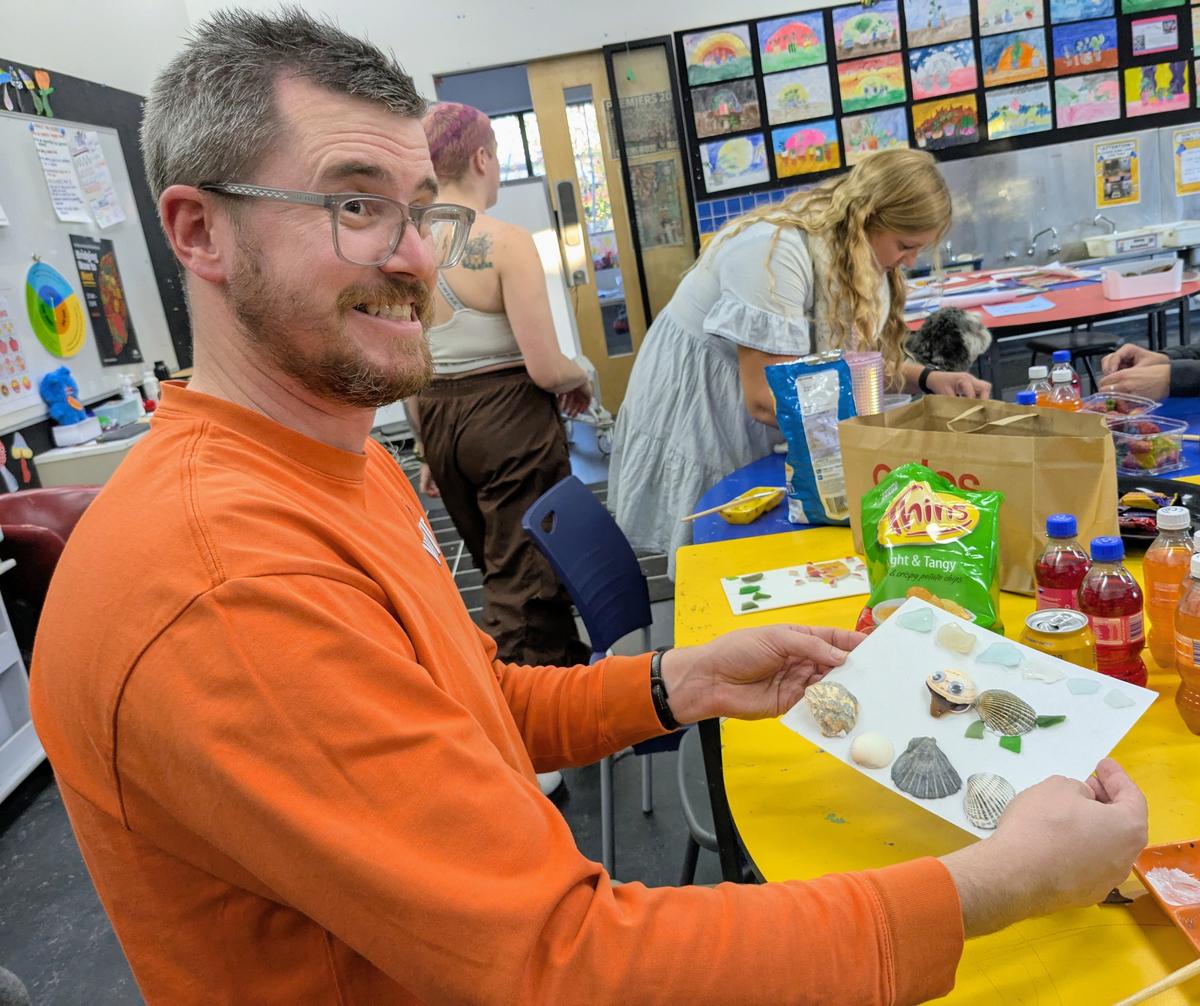
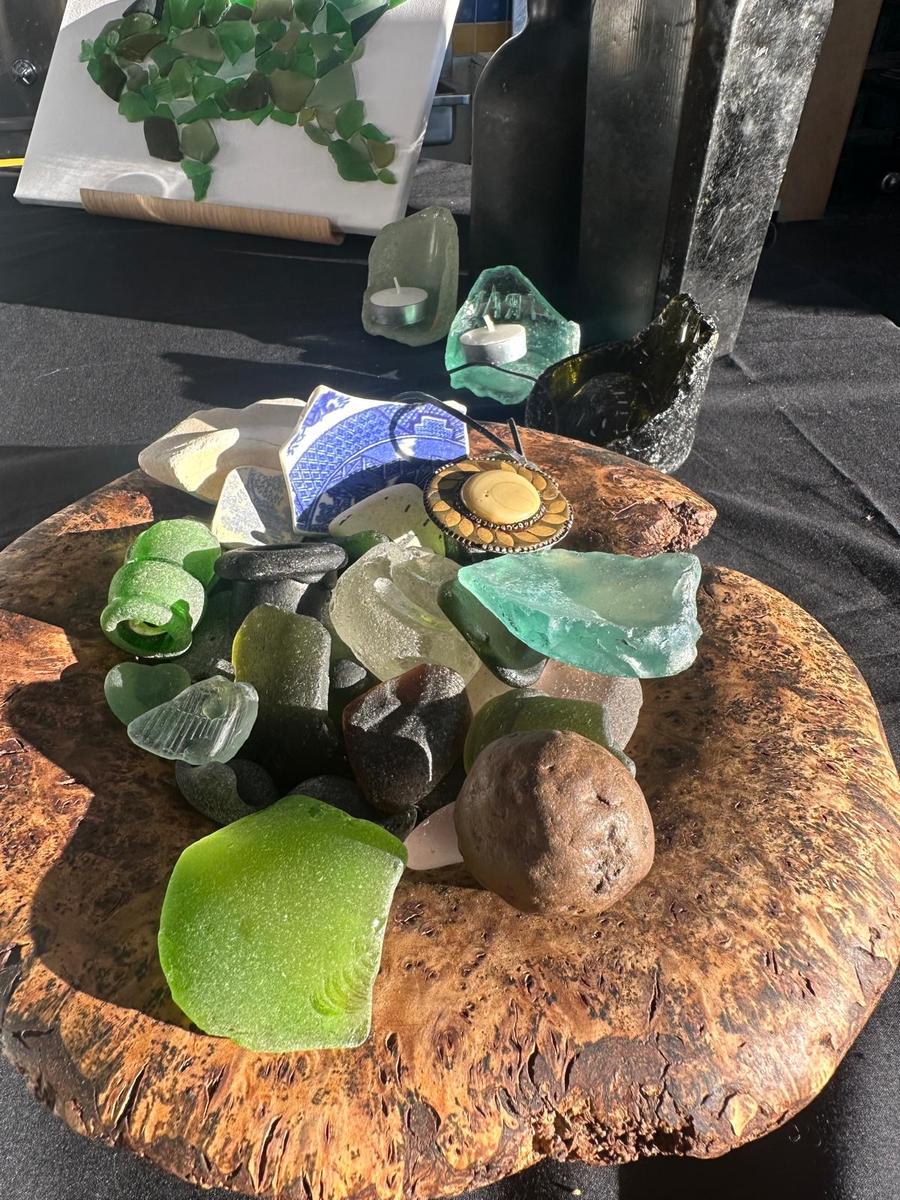
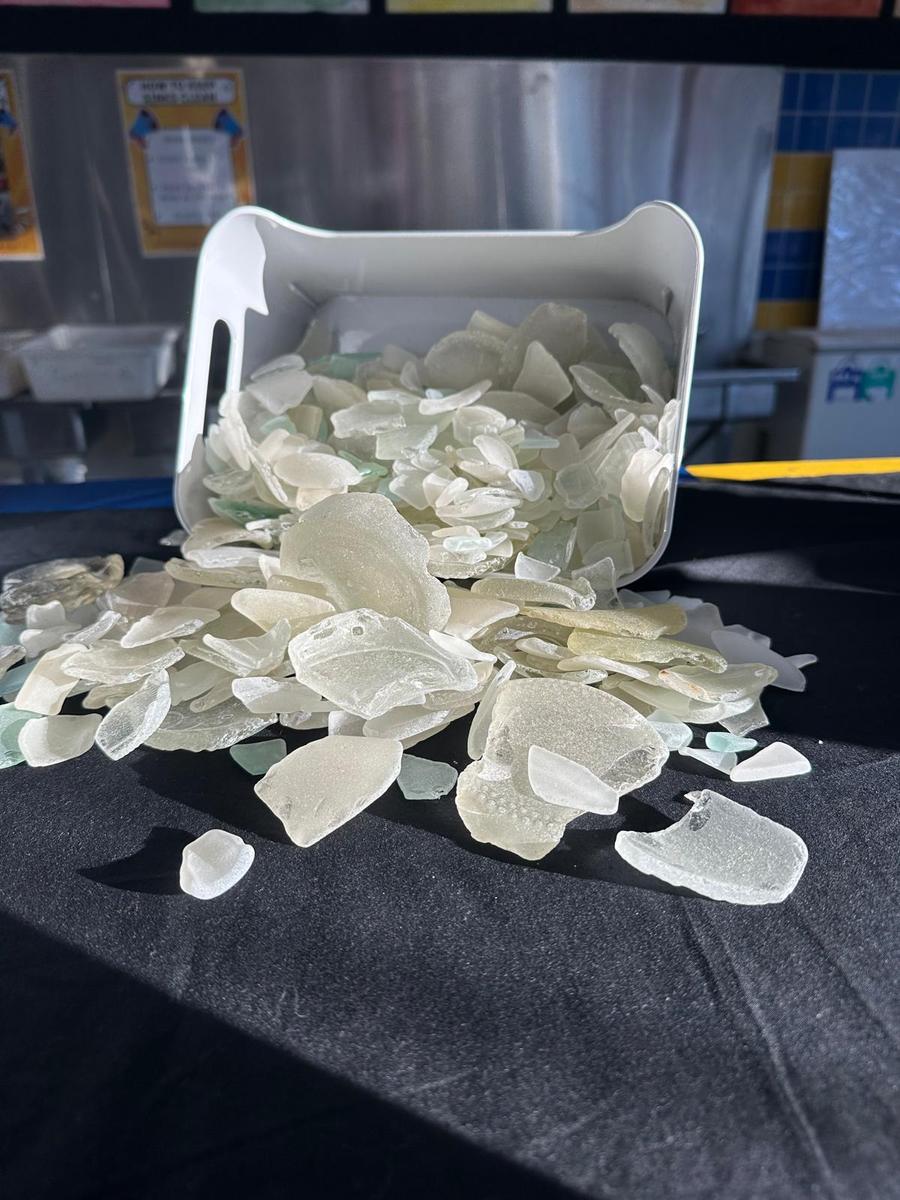
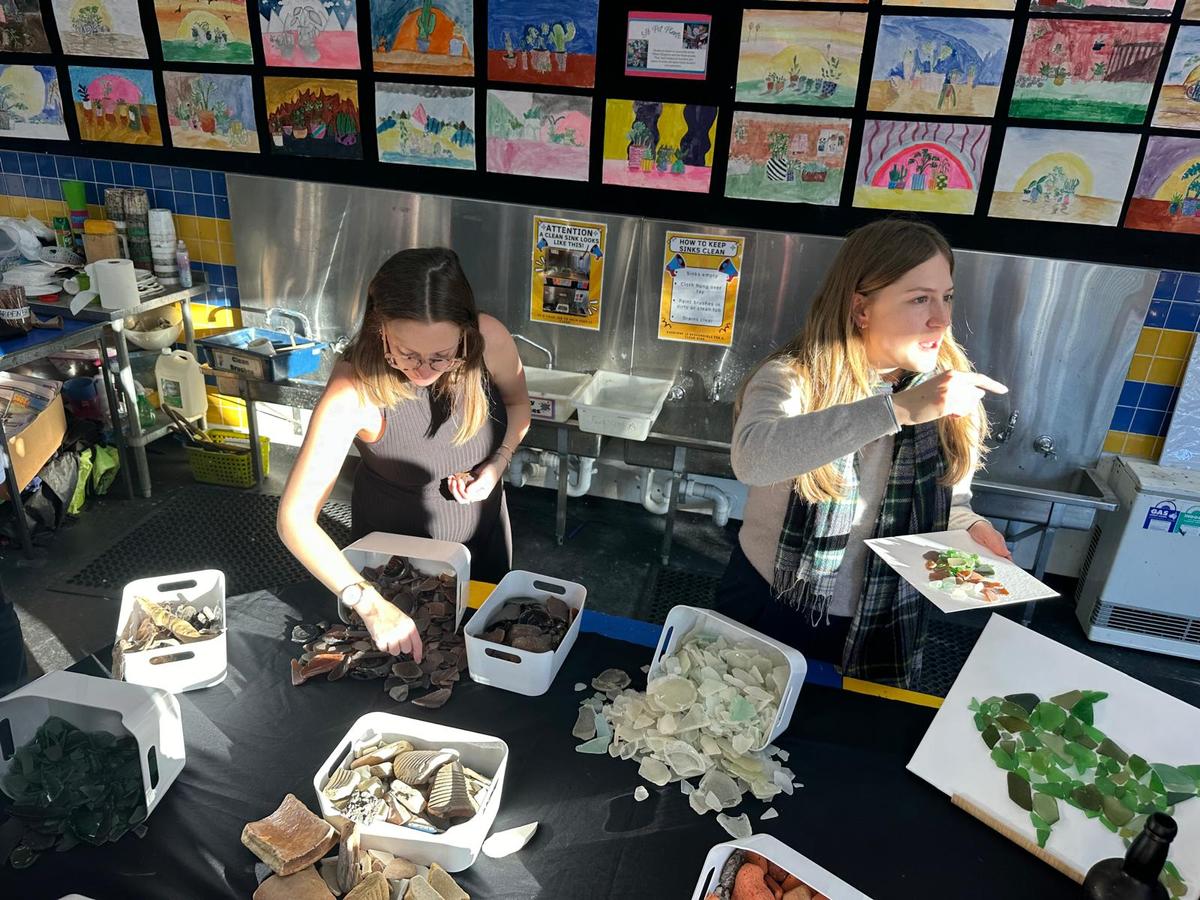
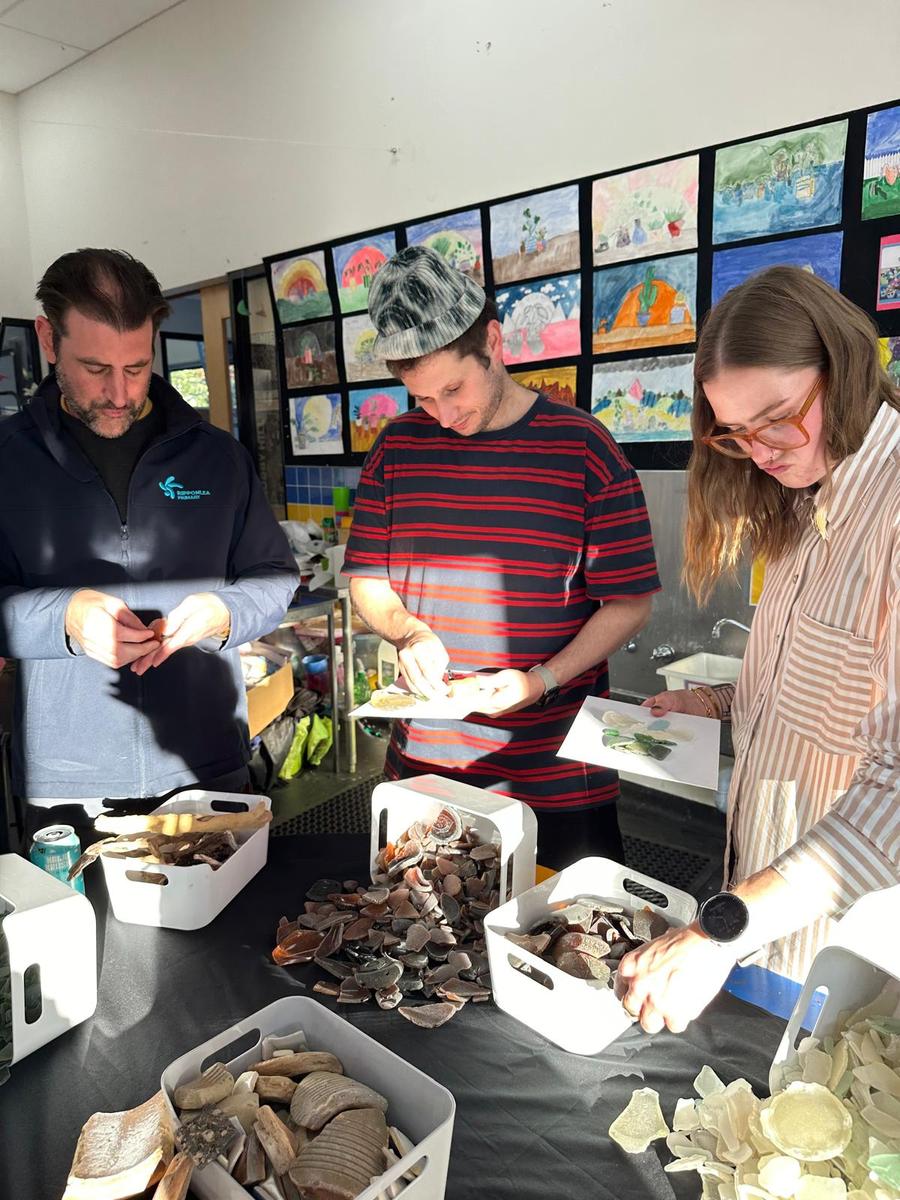
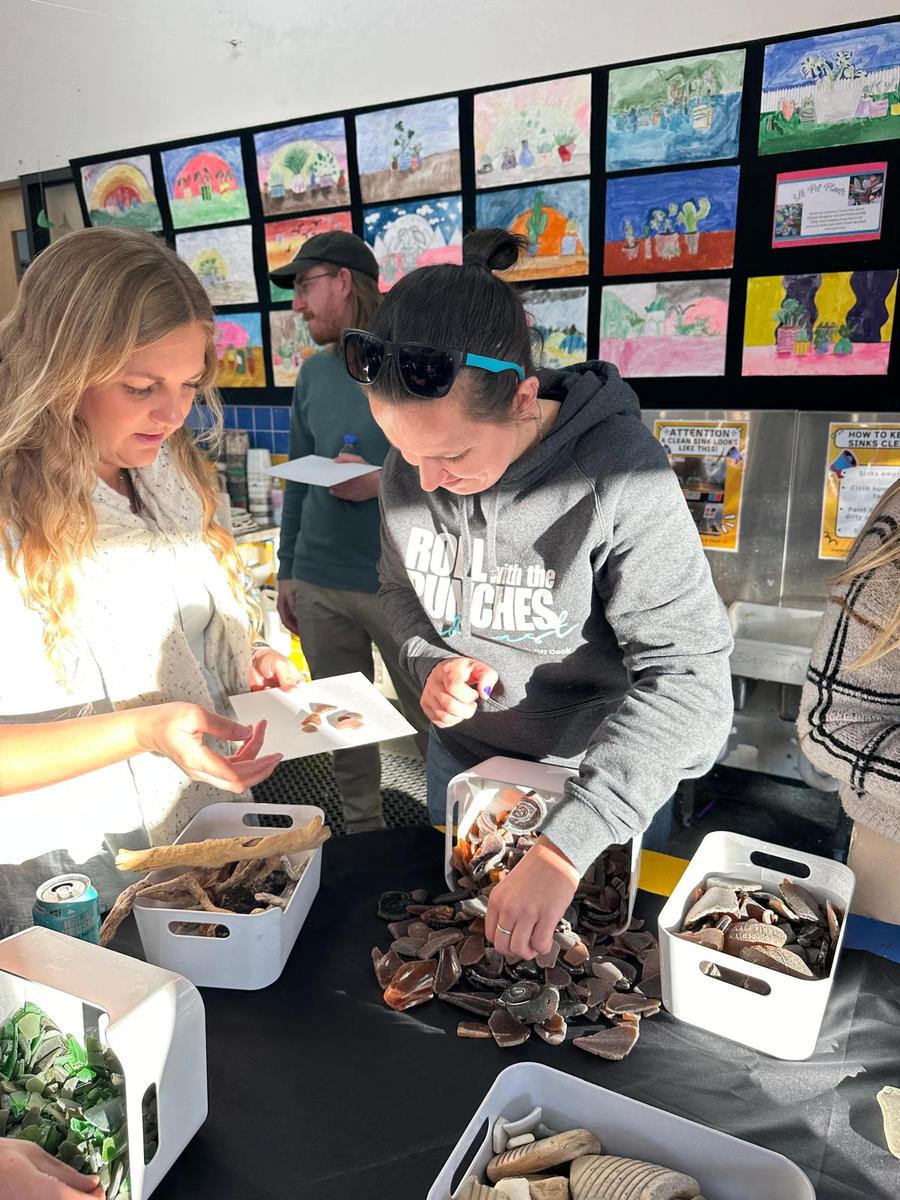
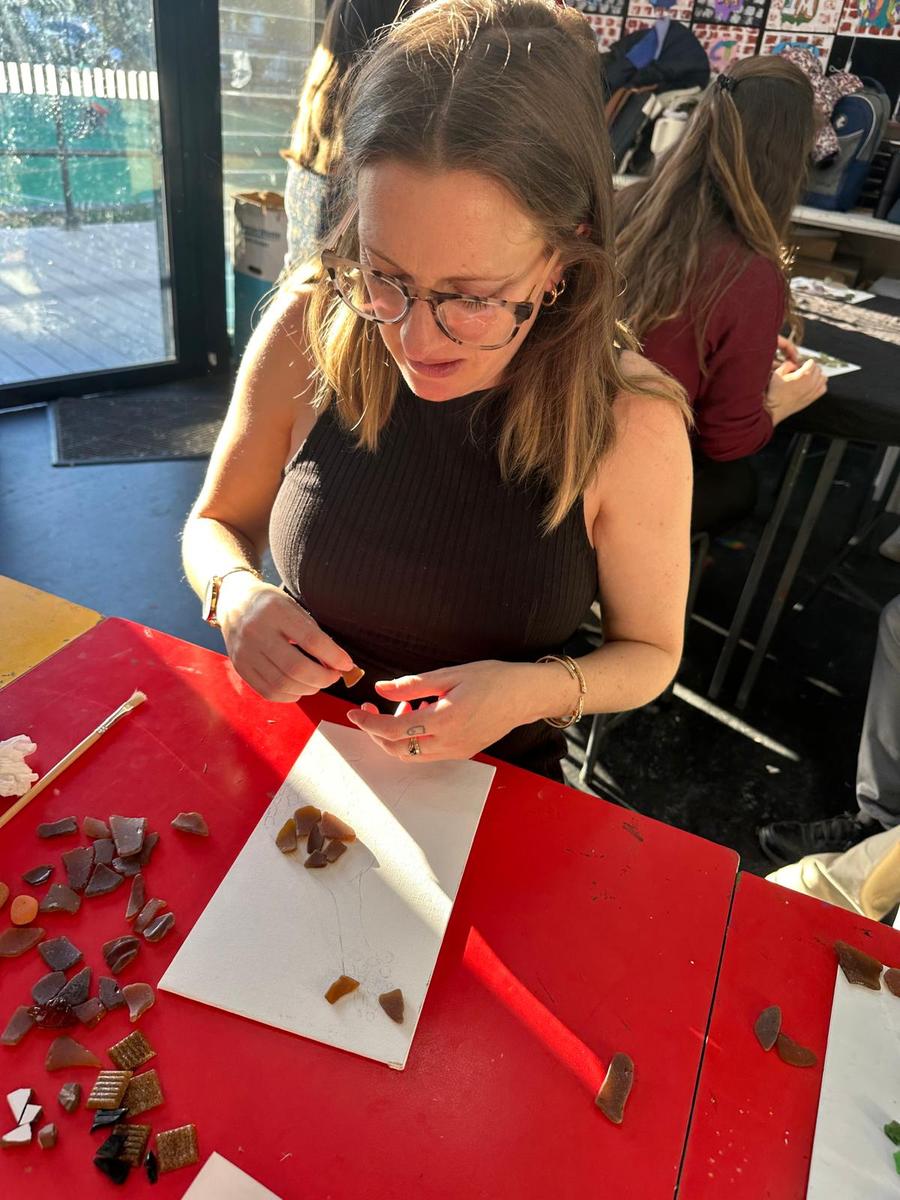
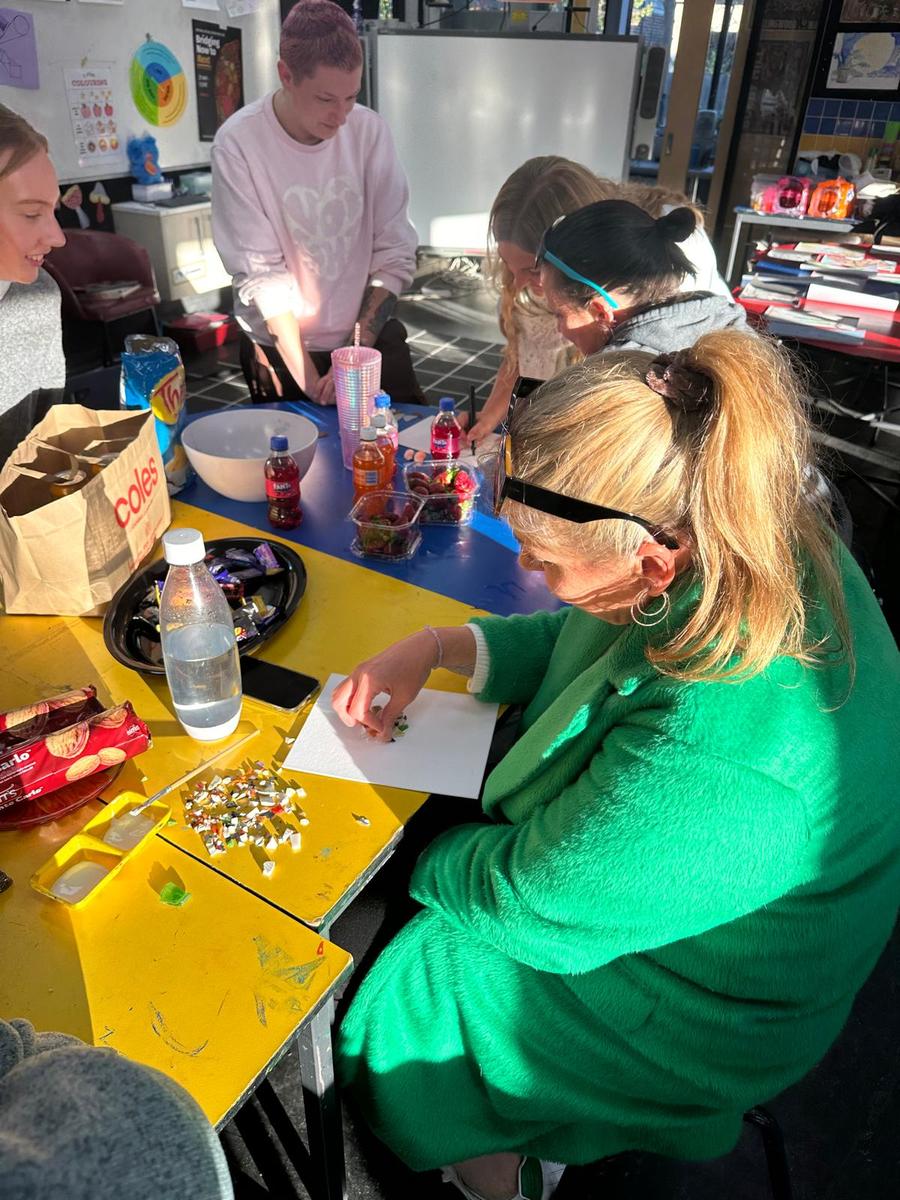
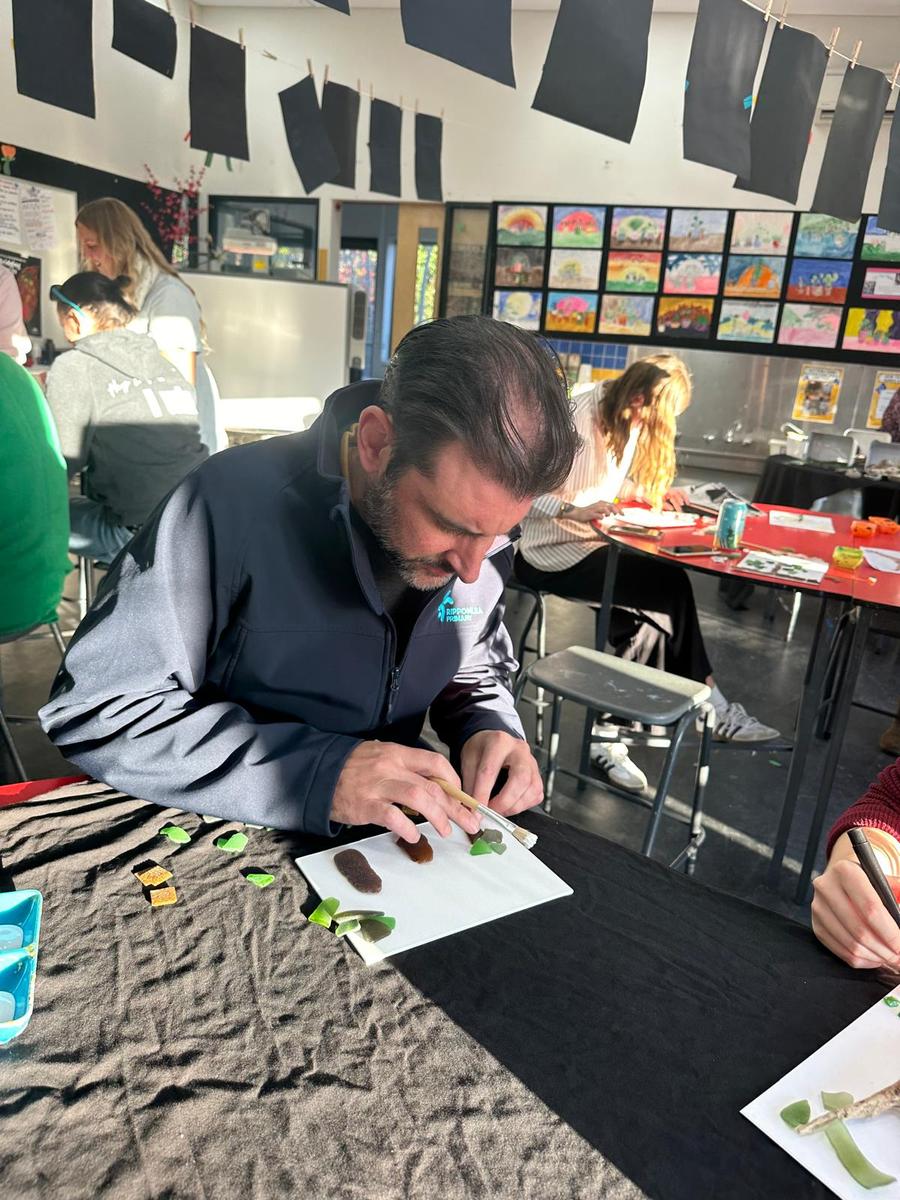
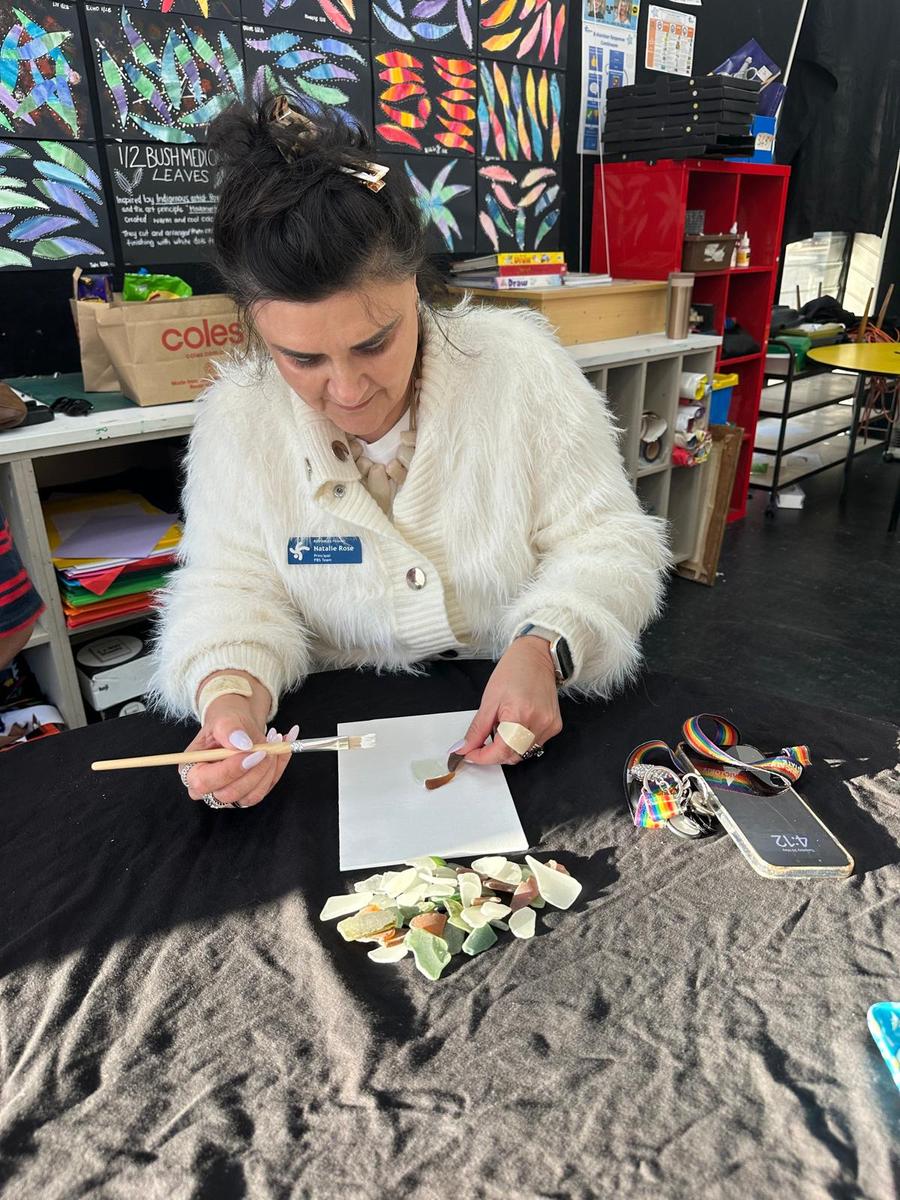
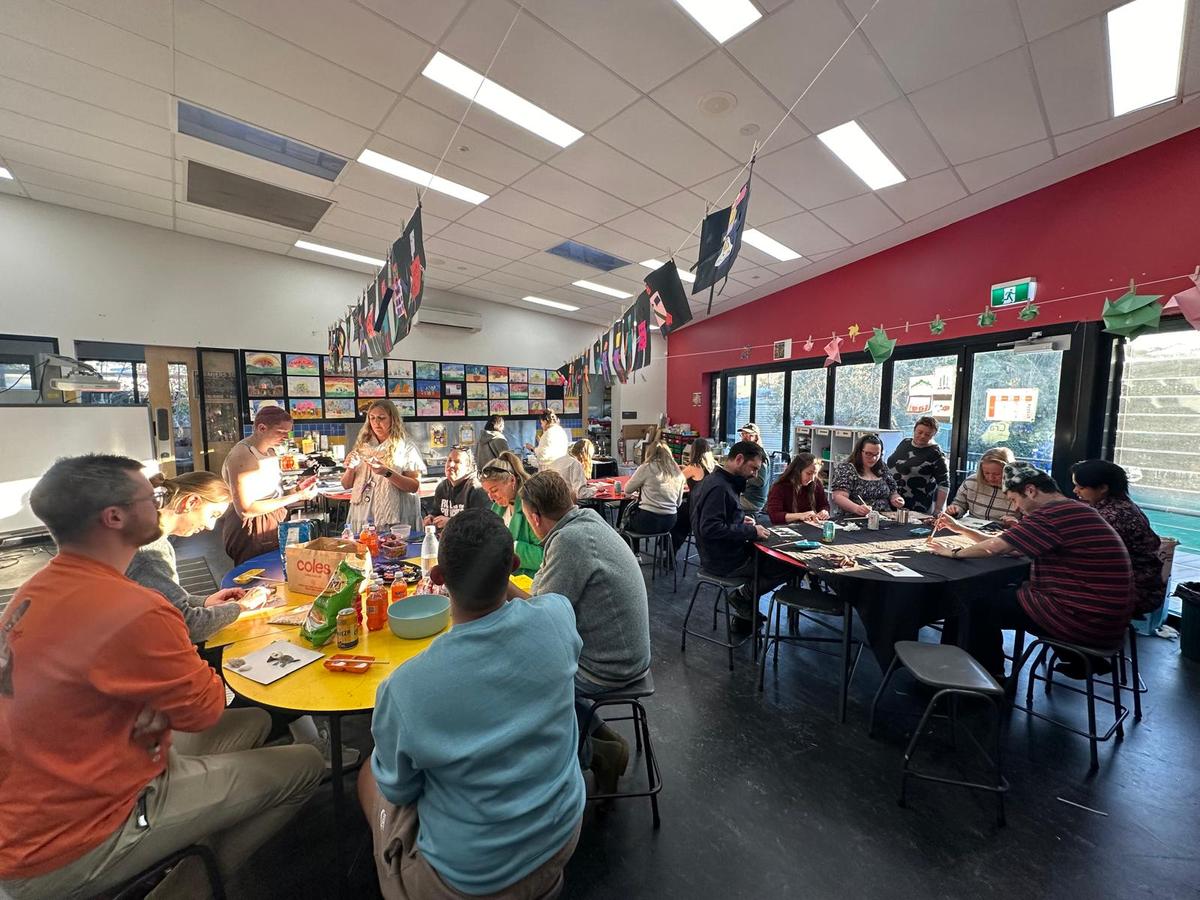
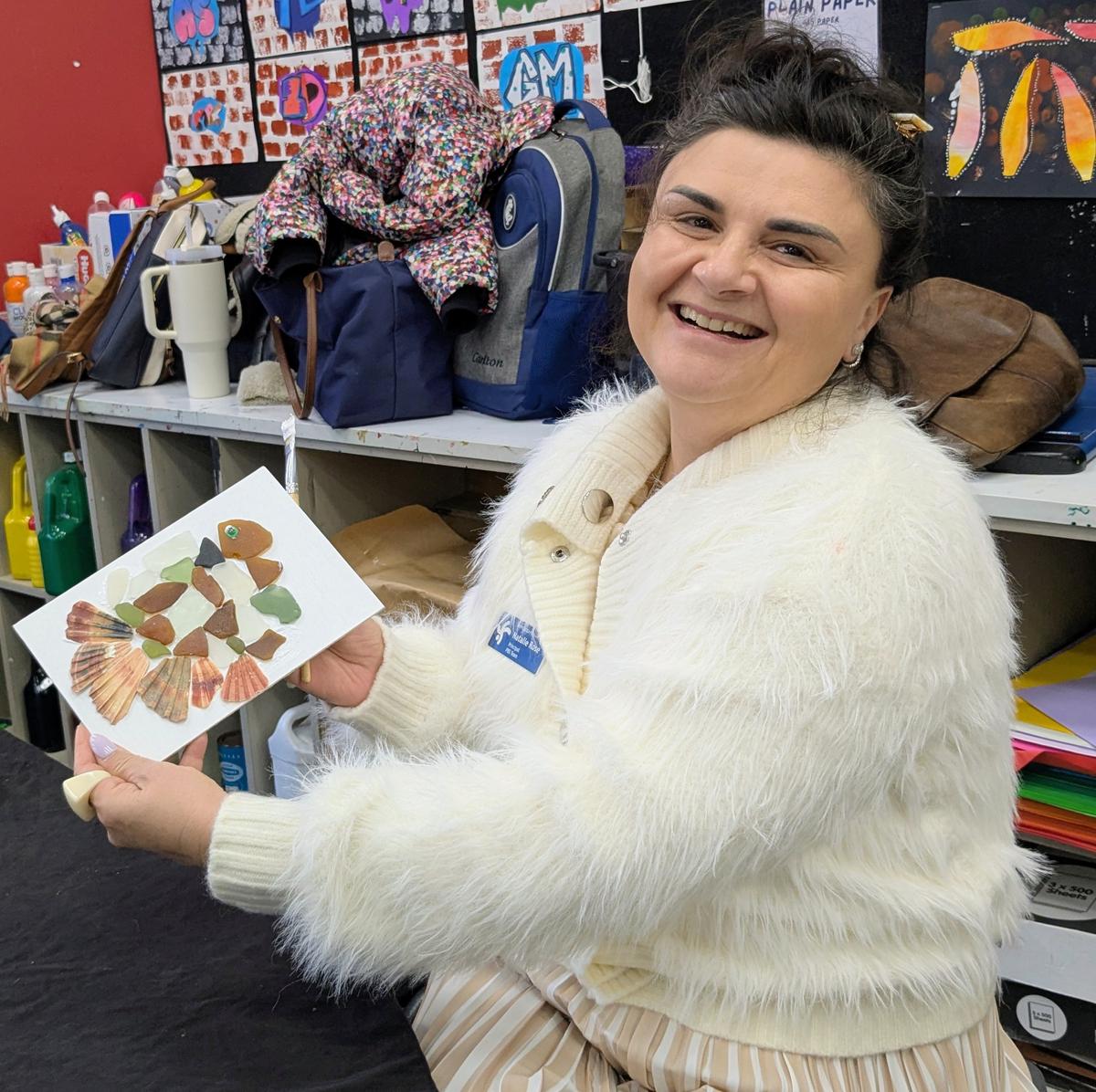
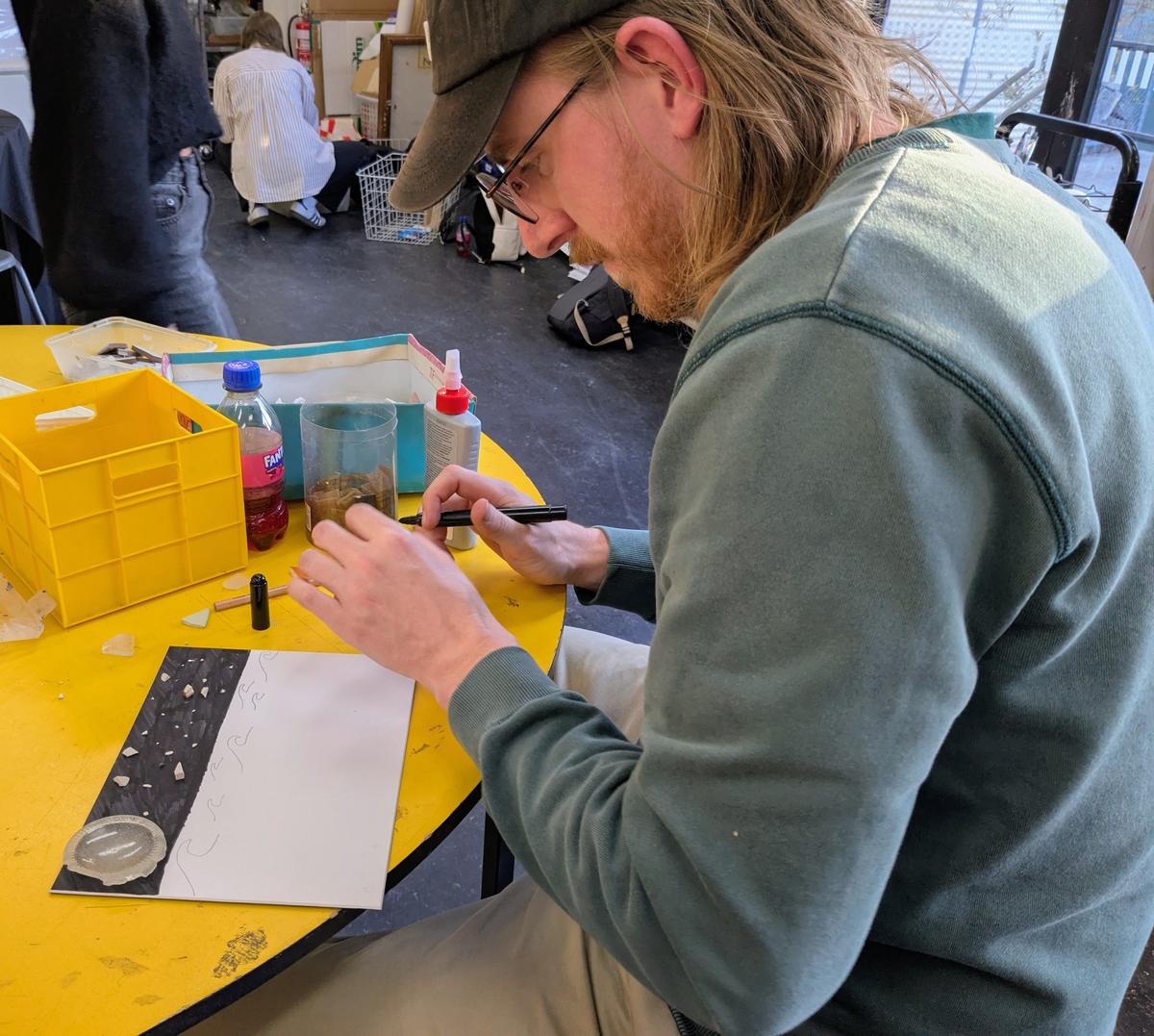
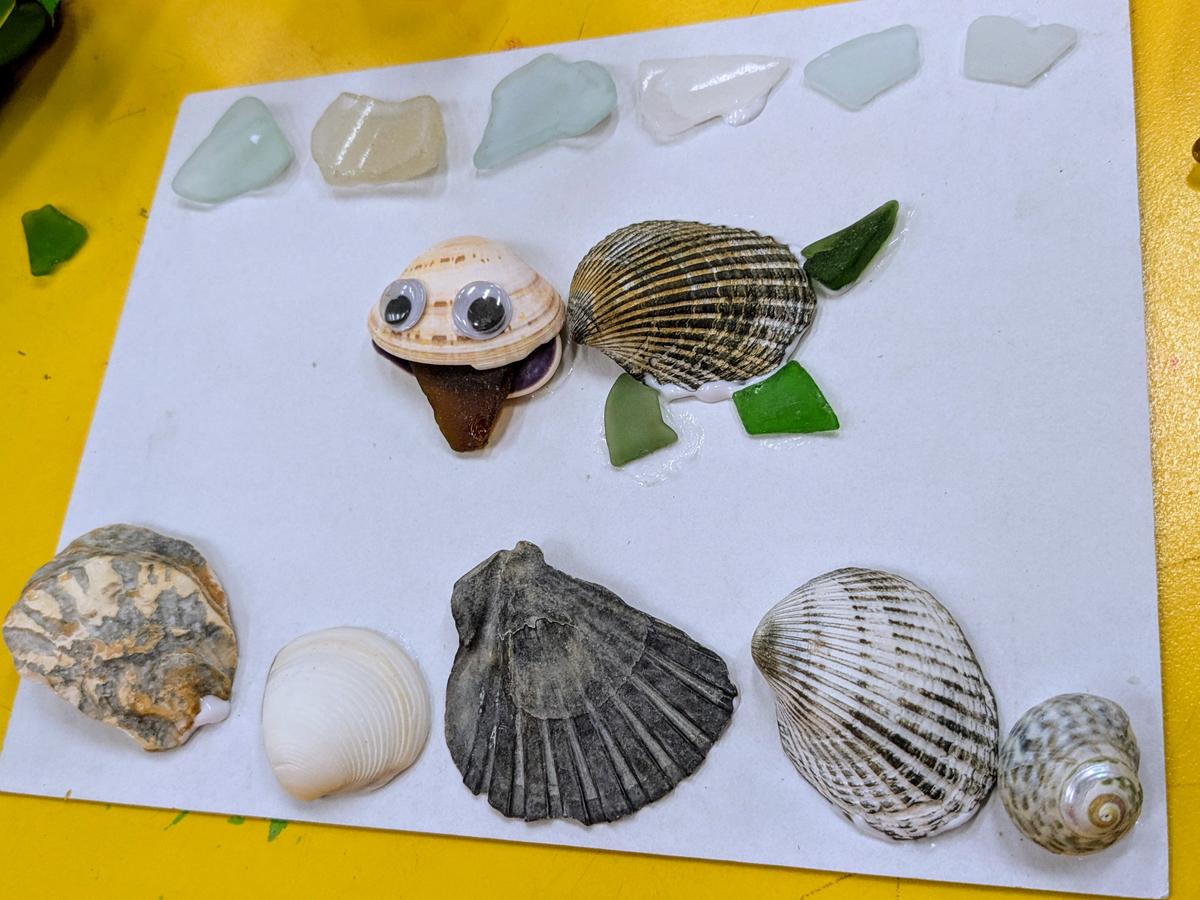
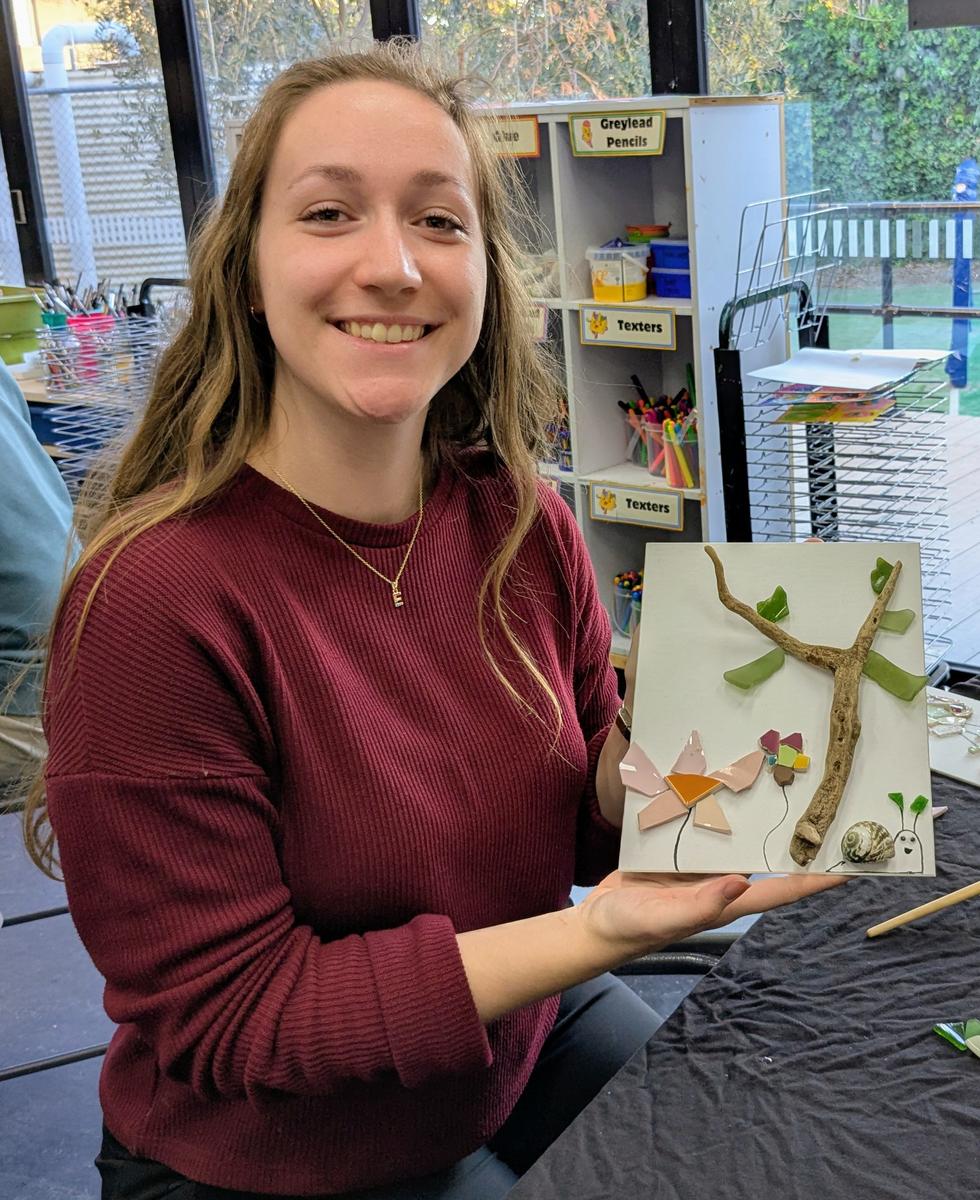
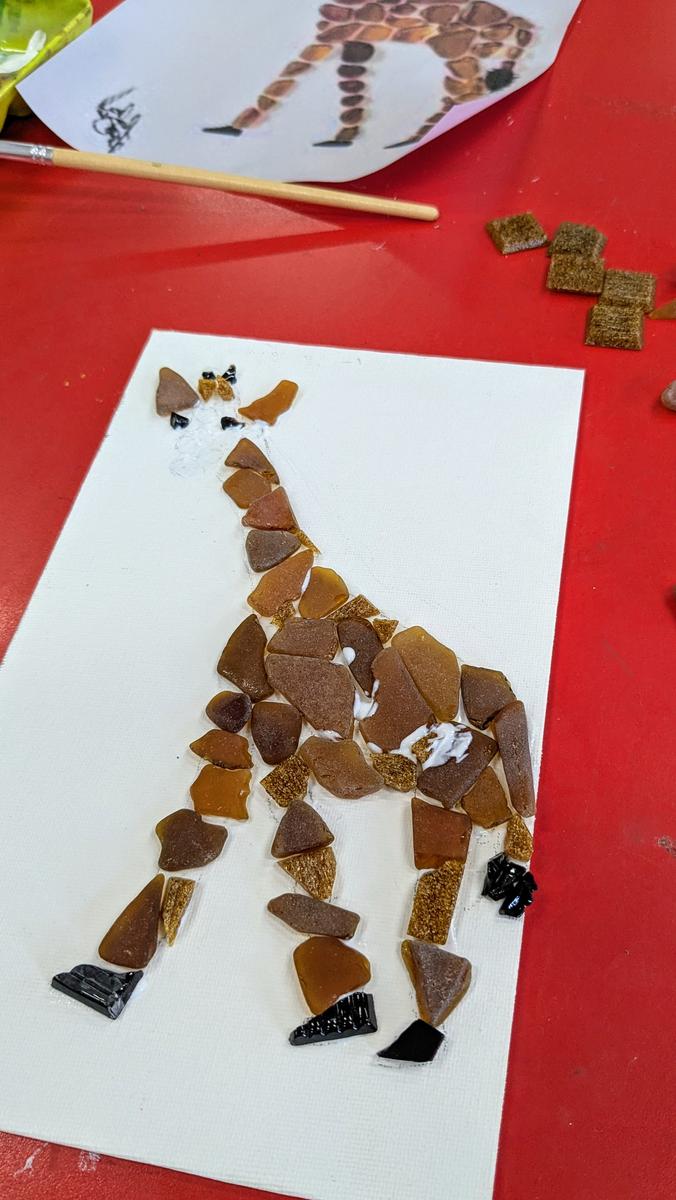
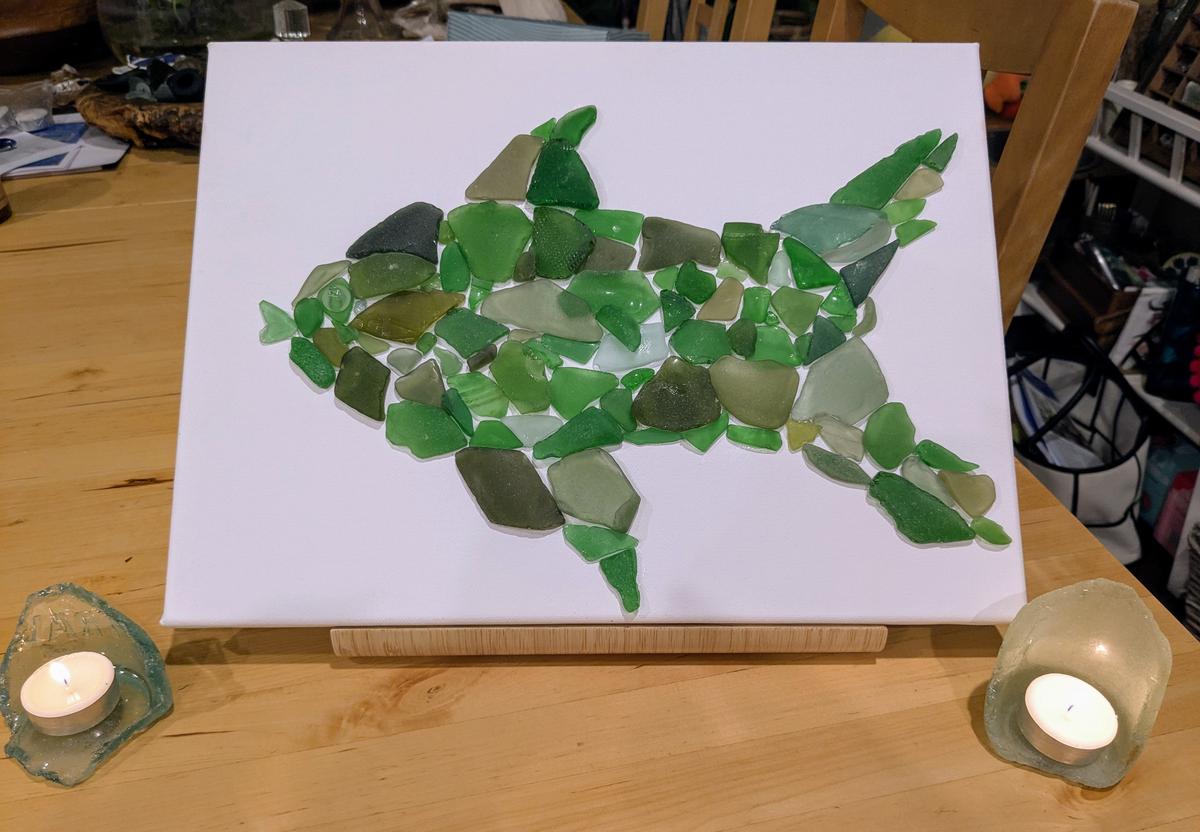






















Until next fortnight!
Natalie Rose & Marta Campbell
Principal Assistant Principal
